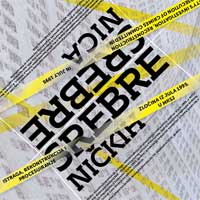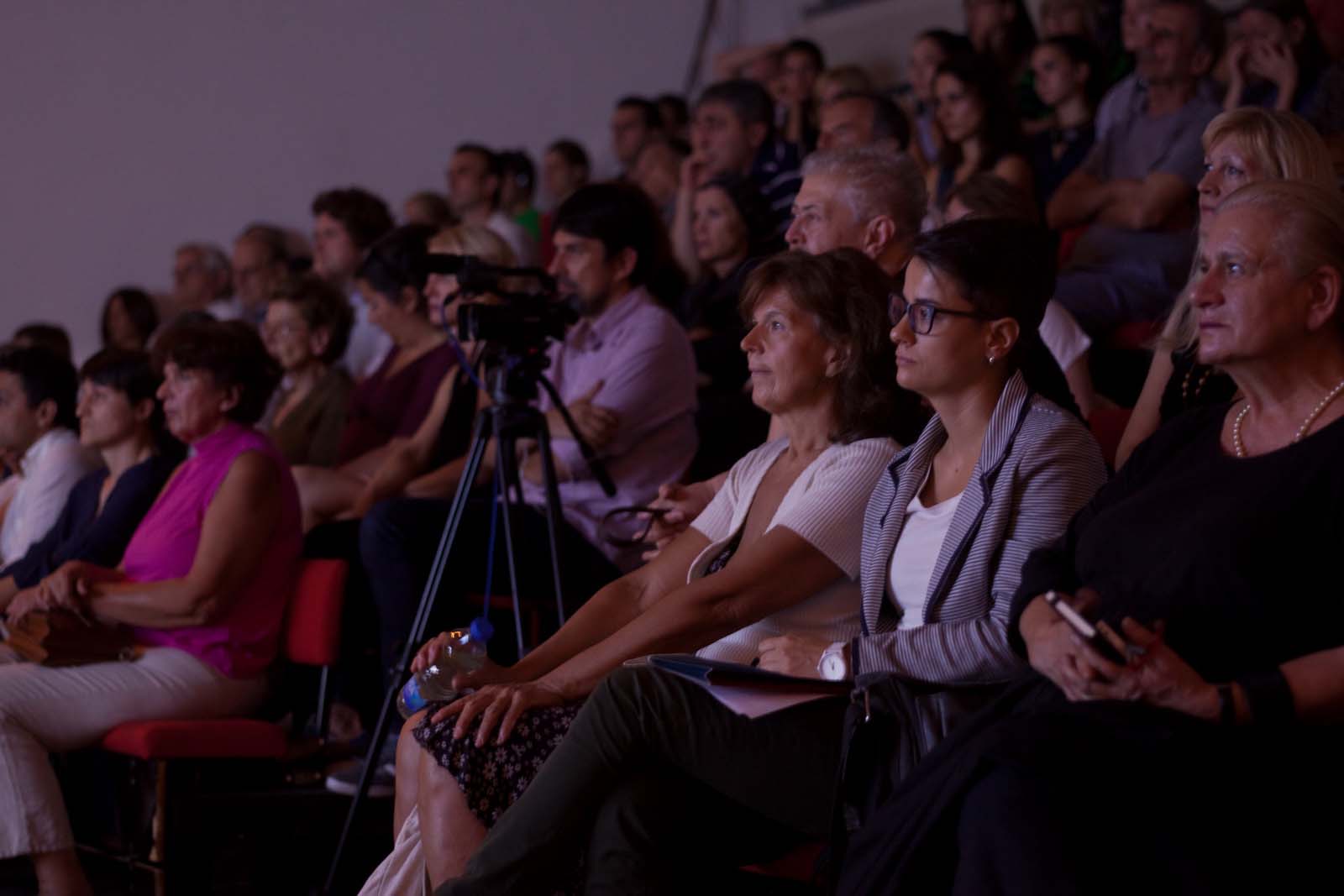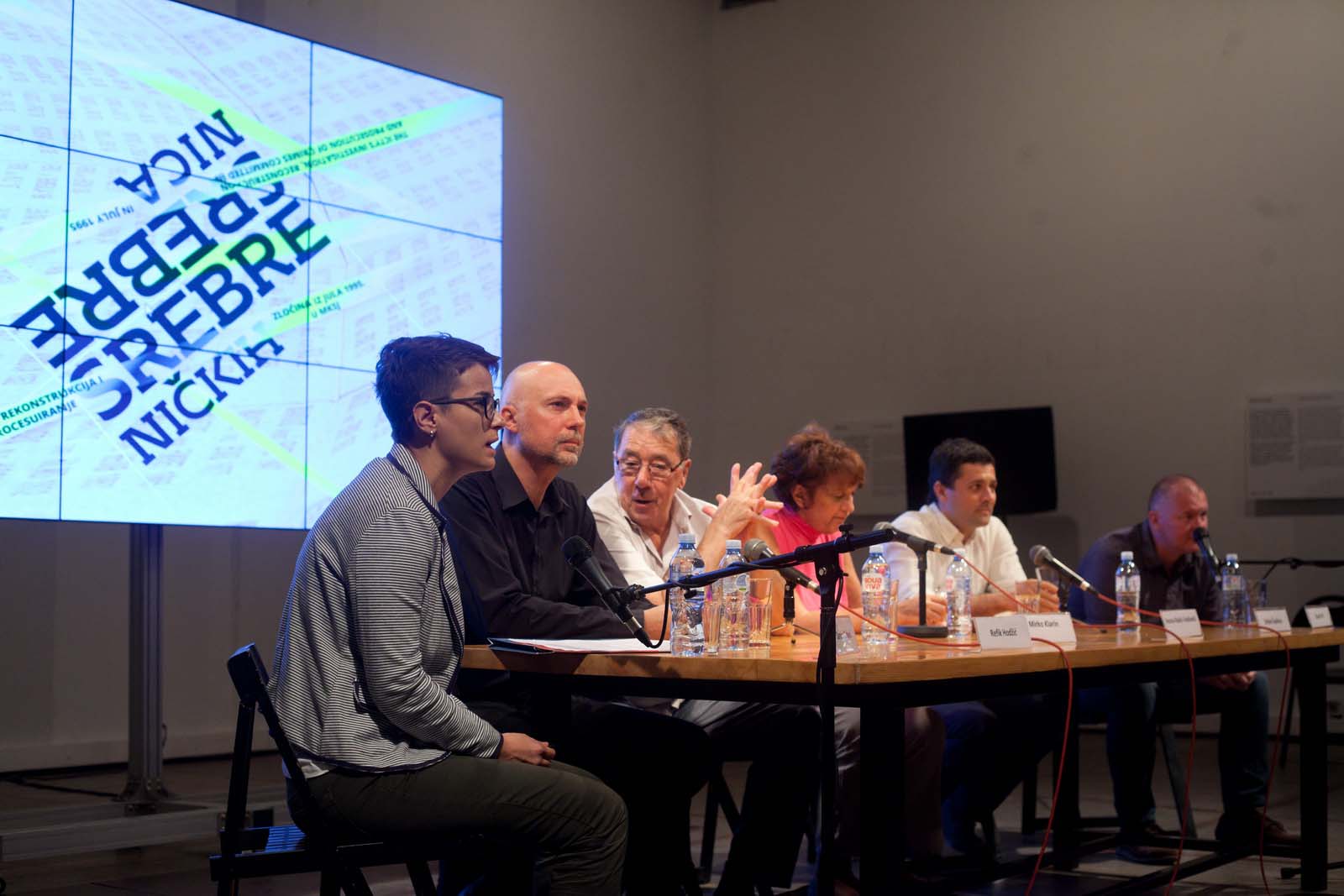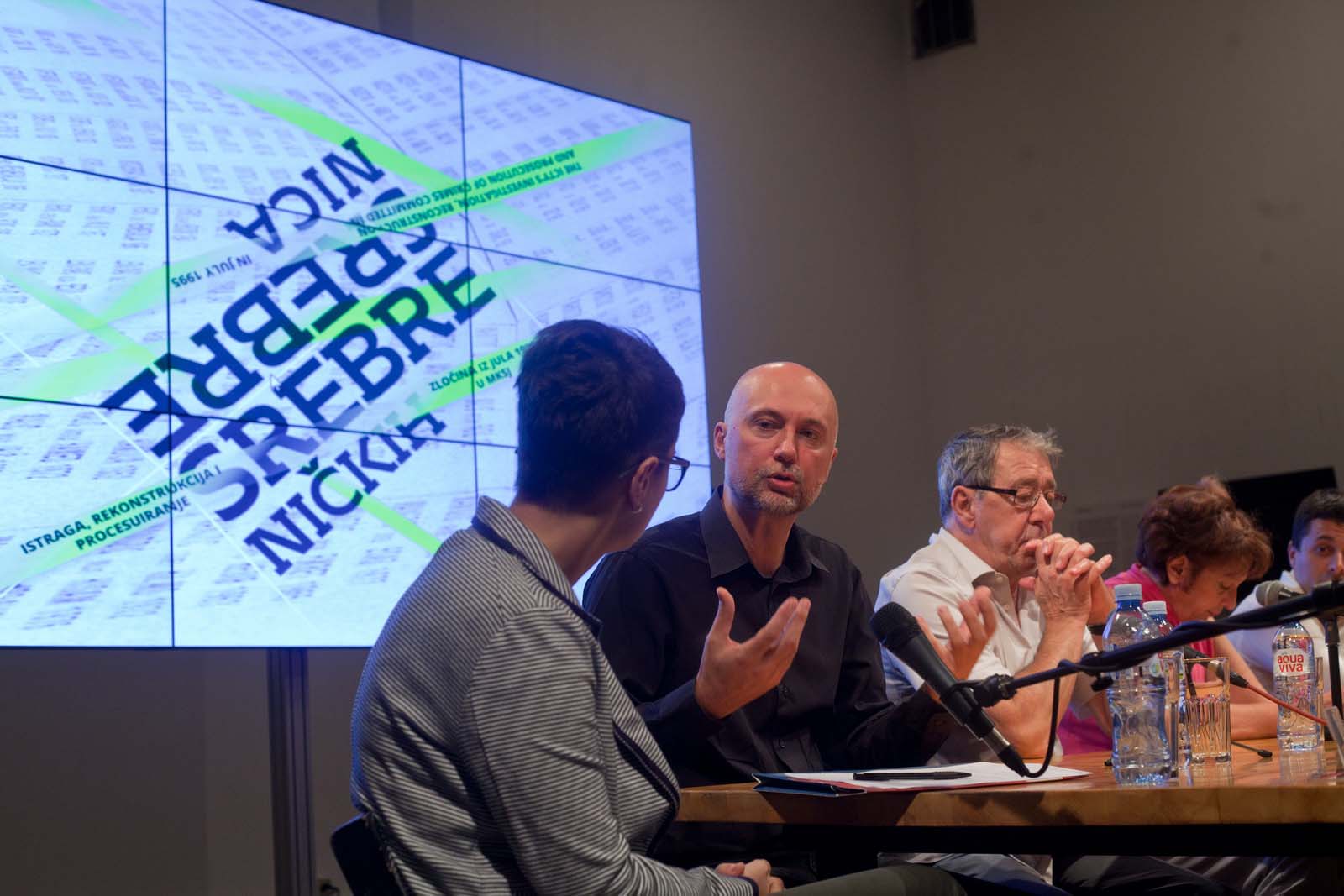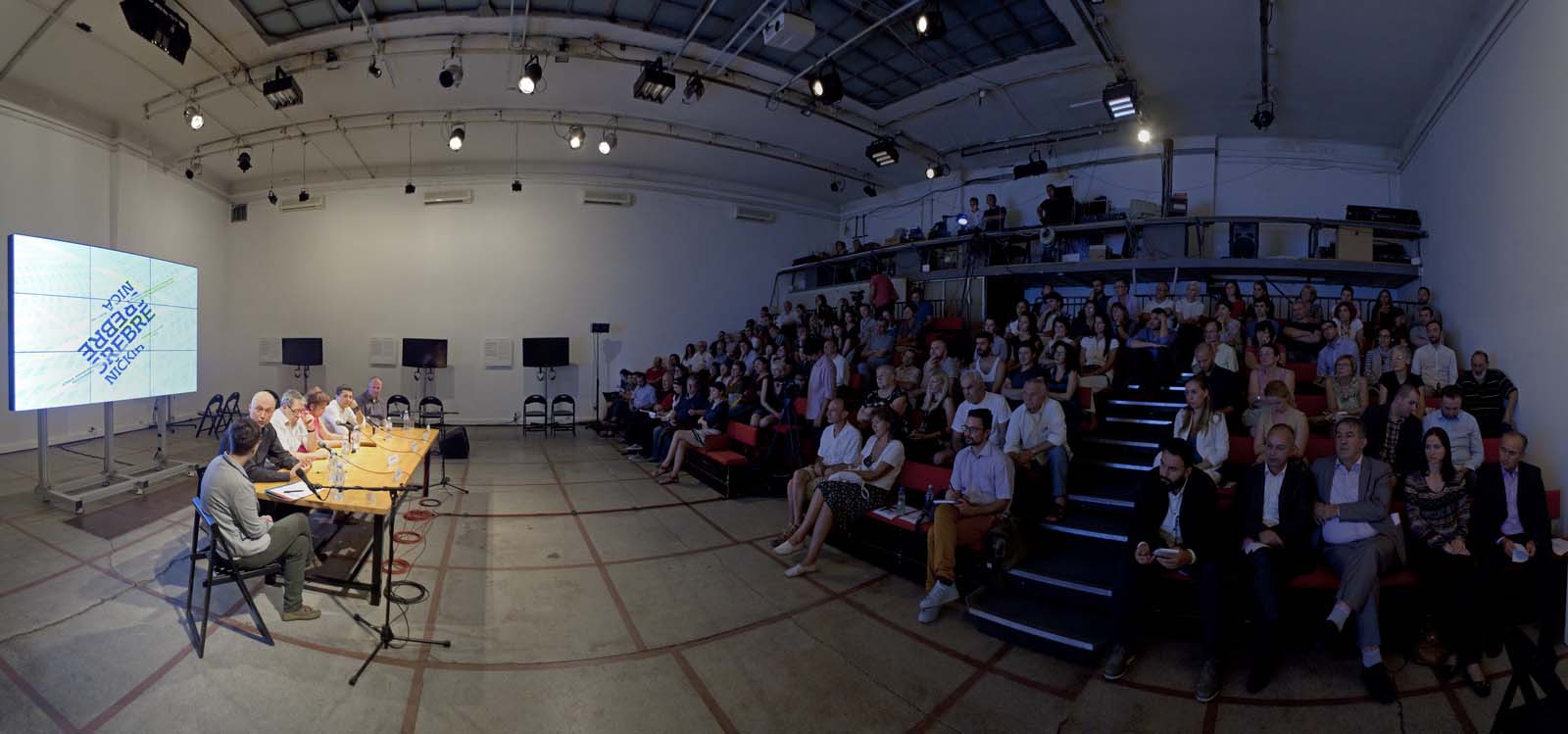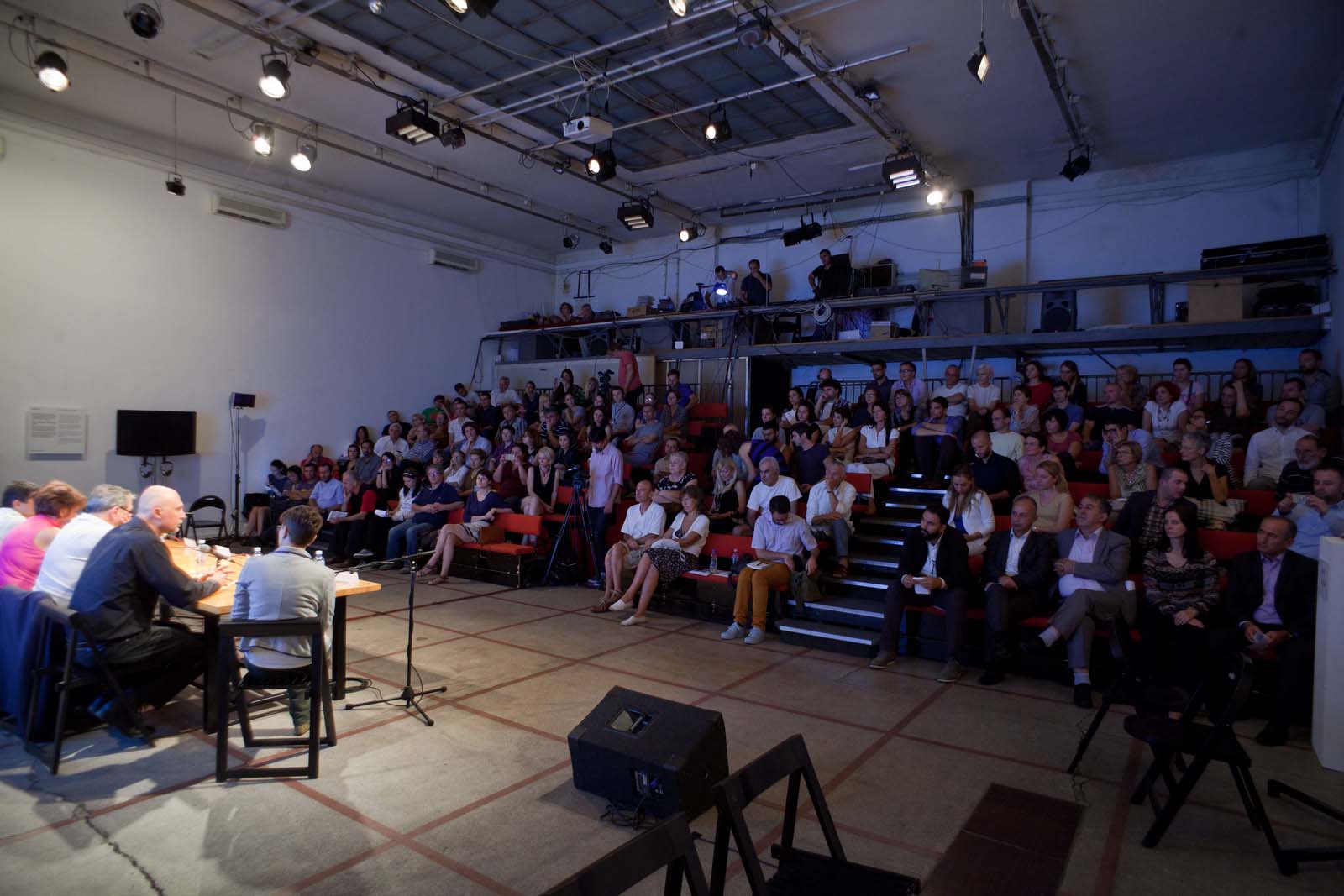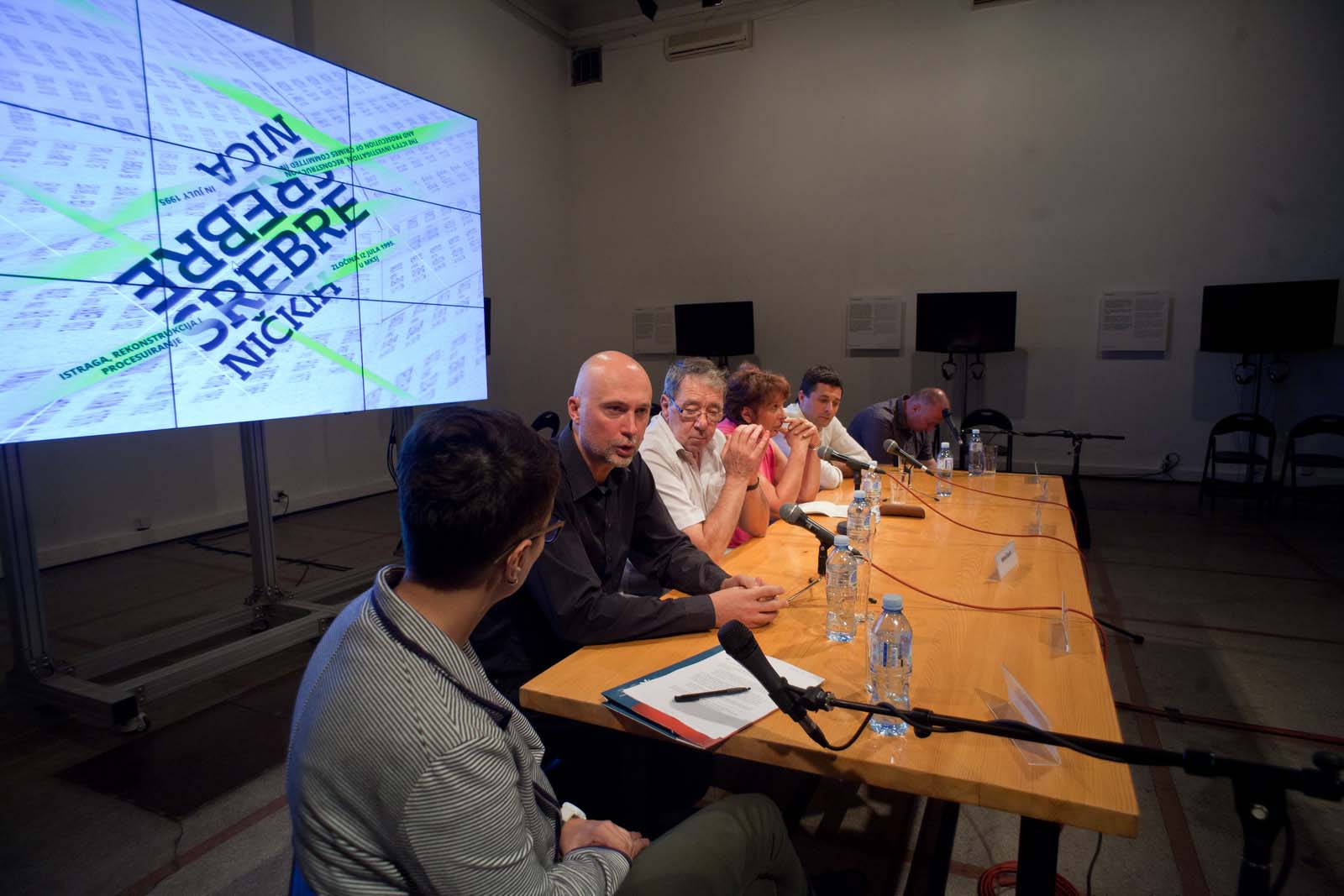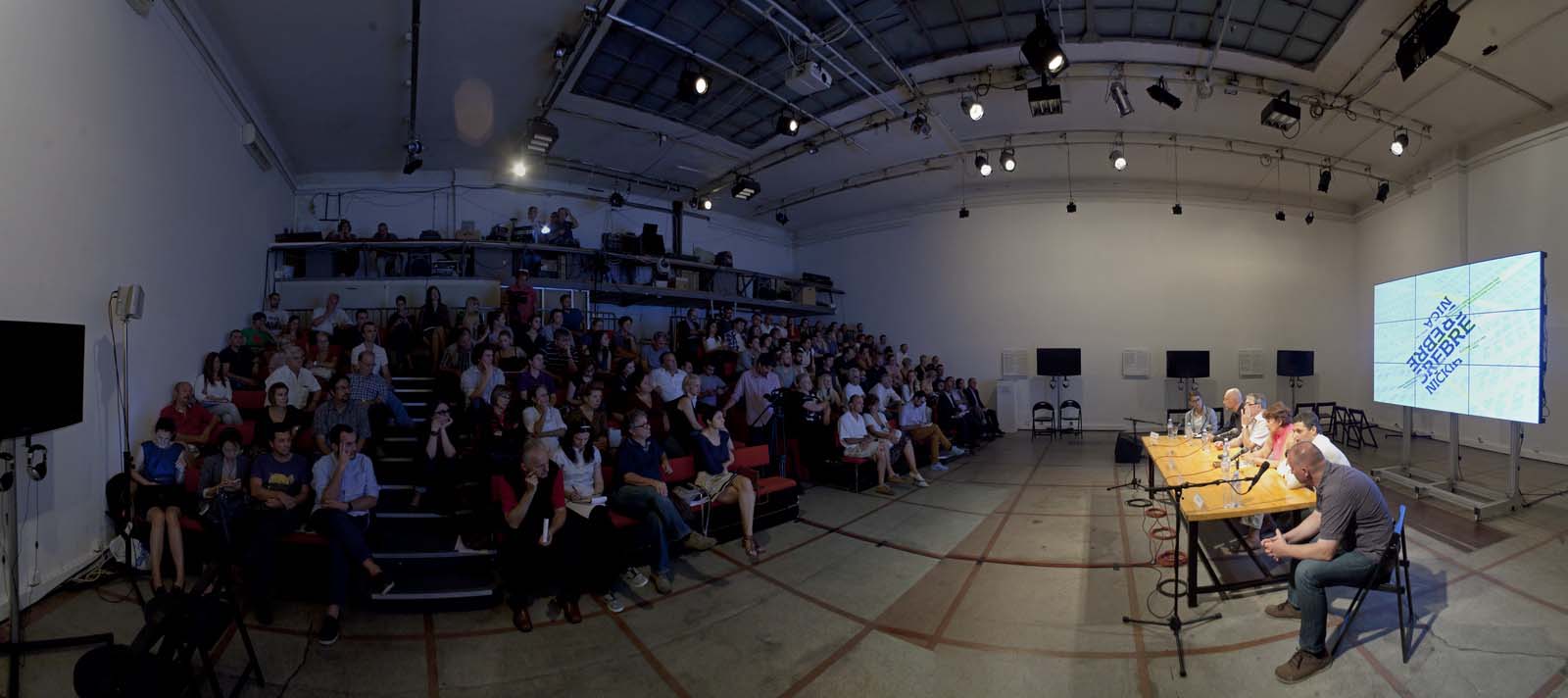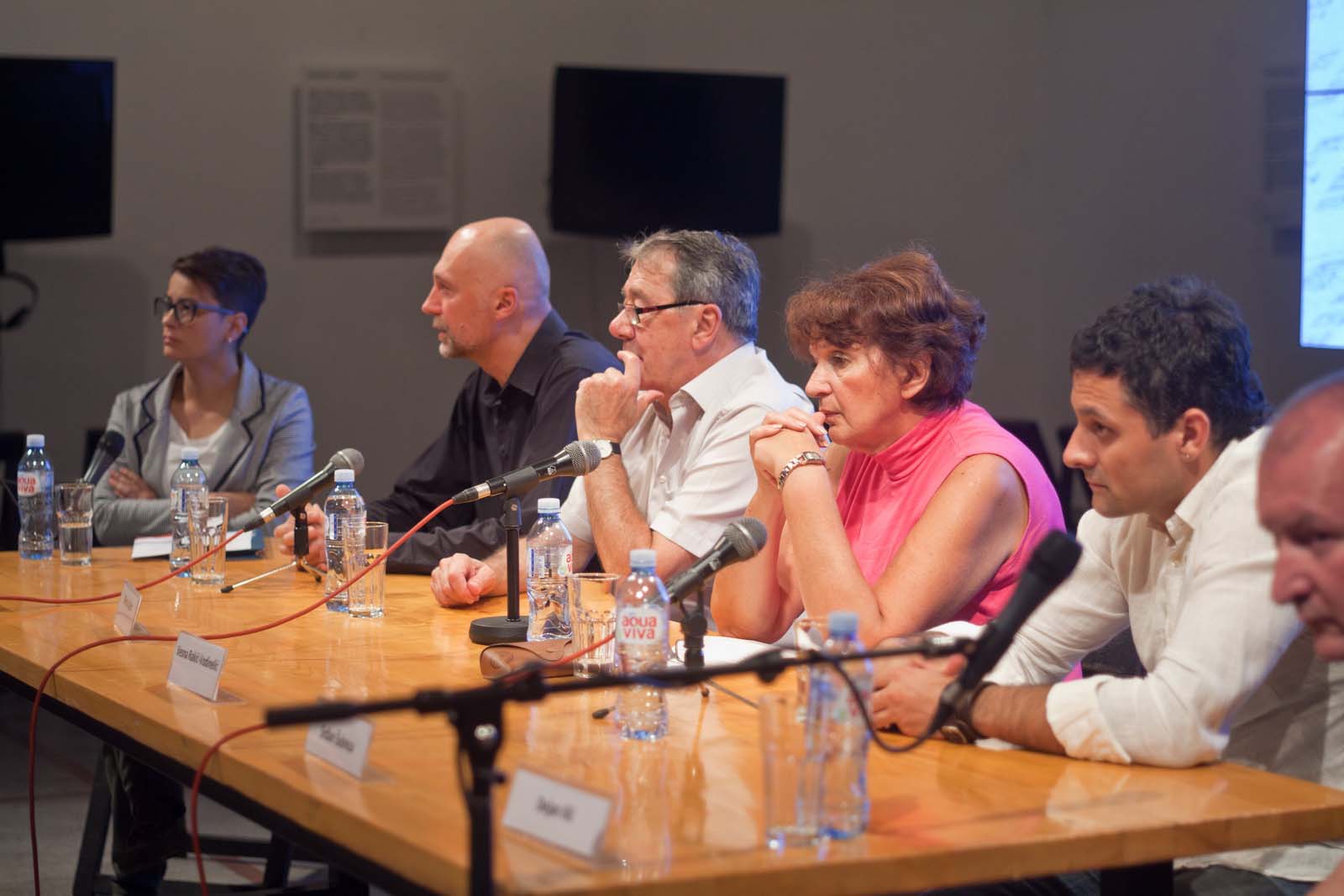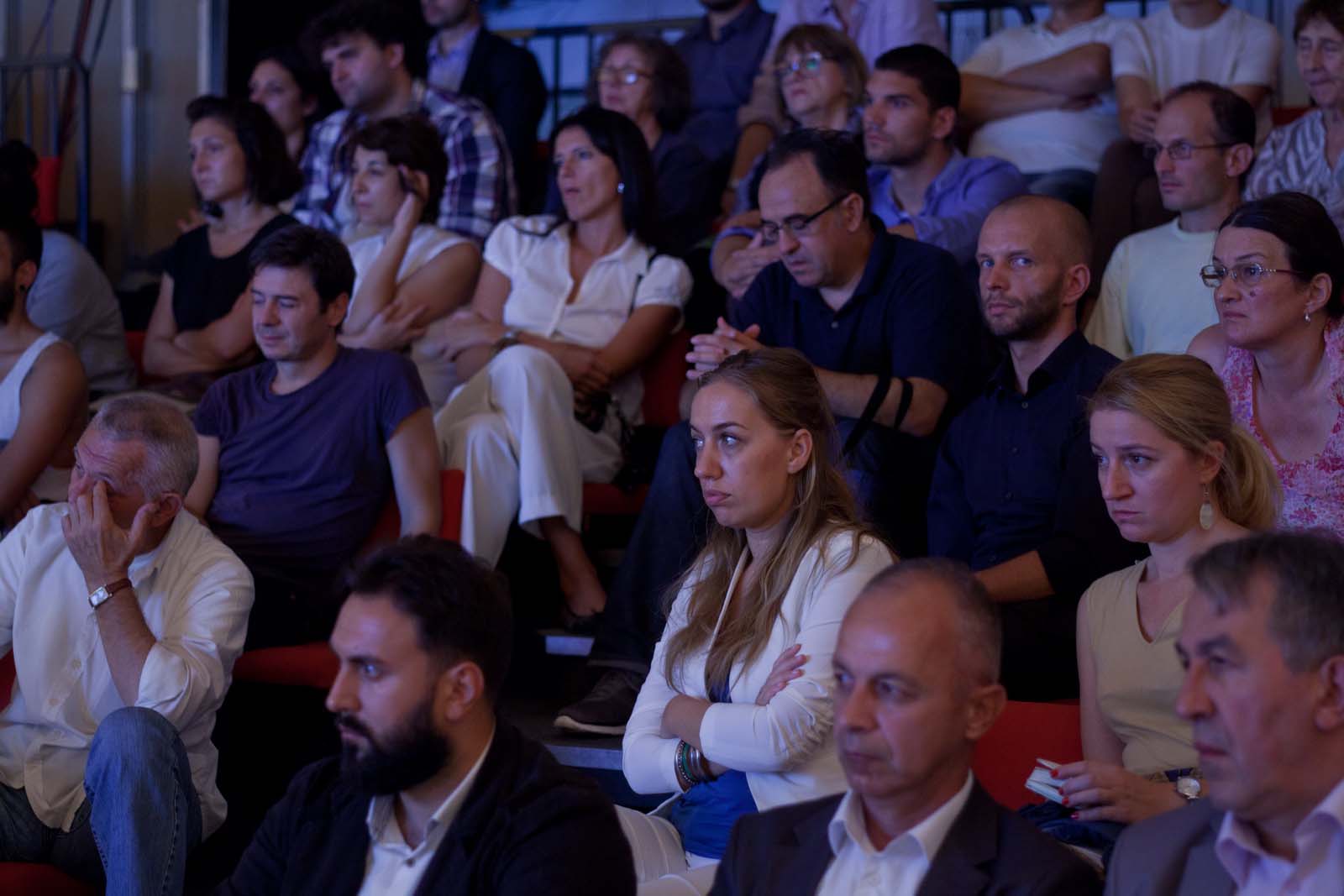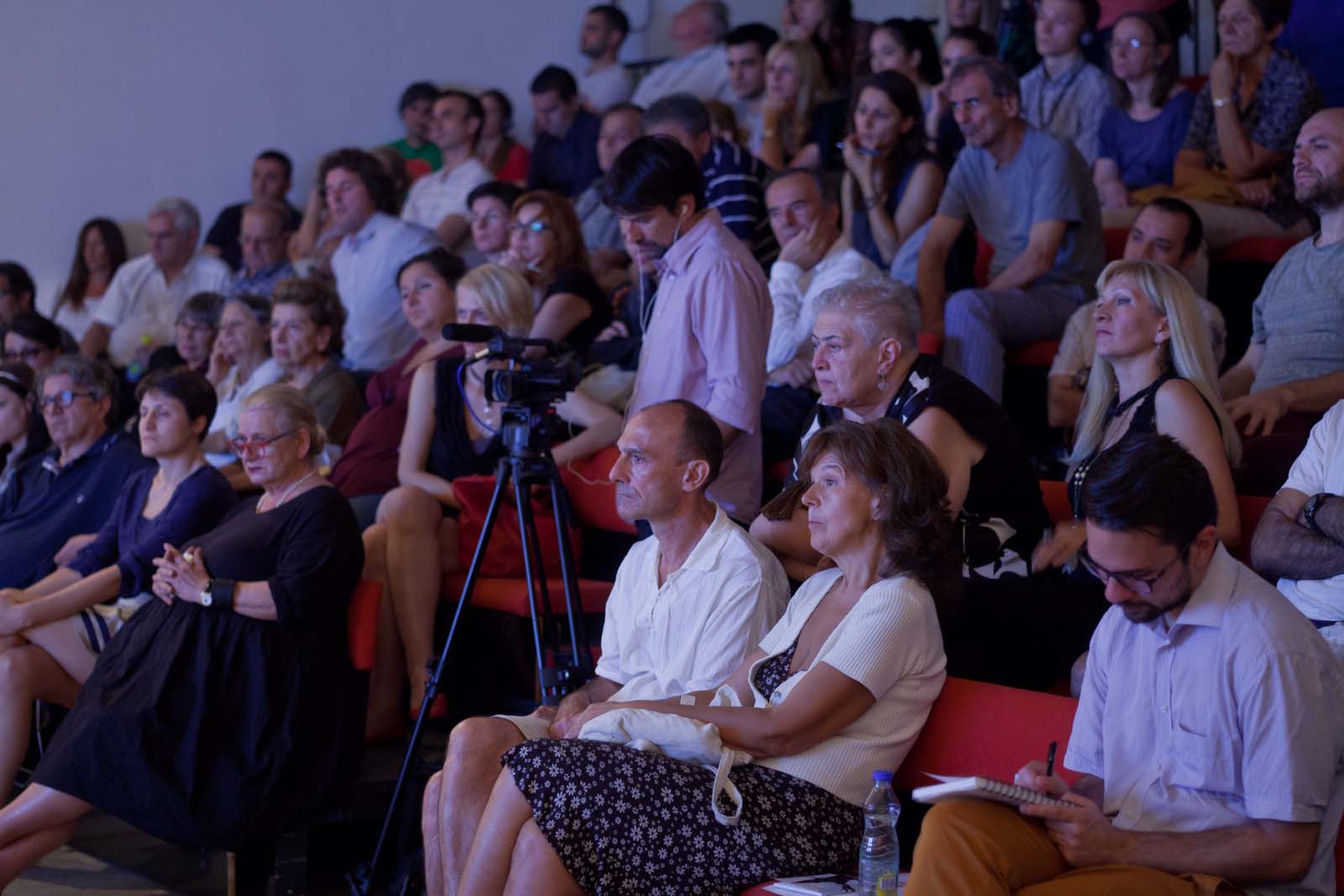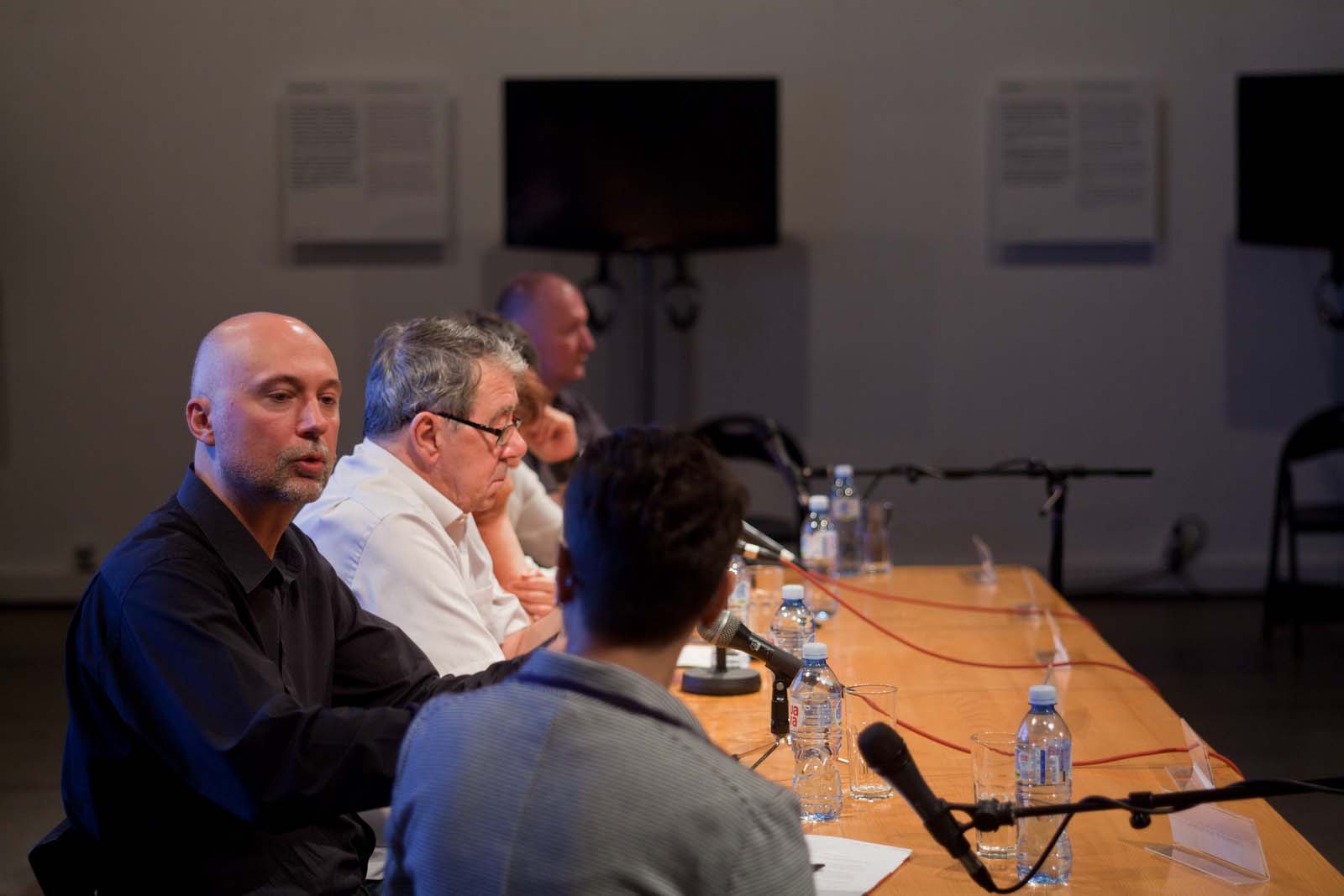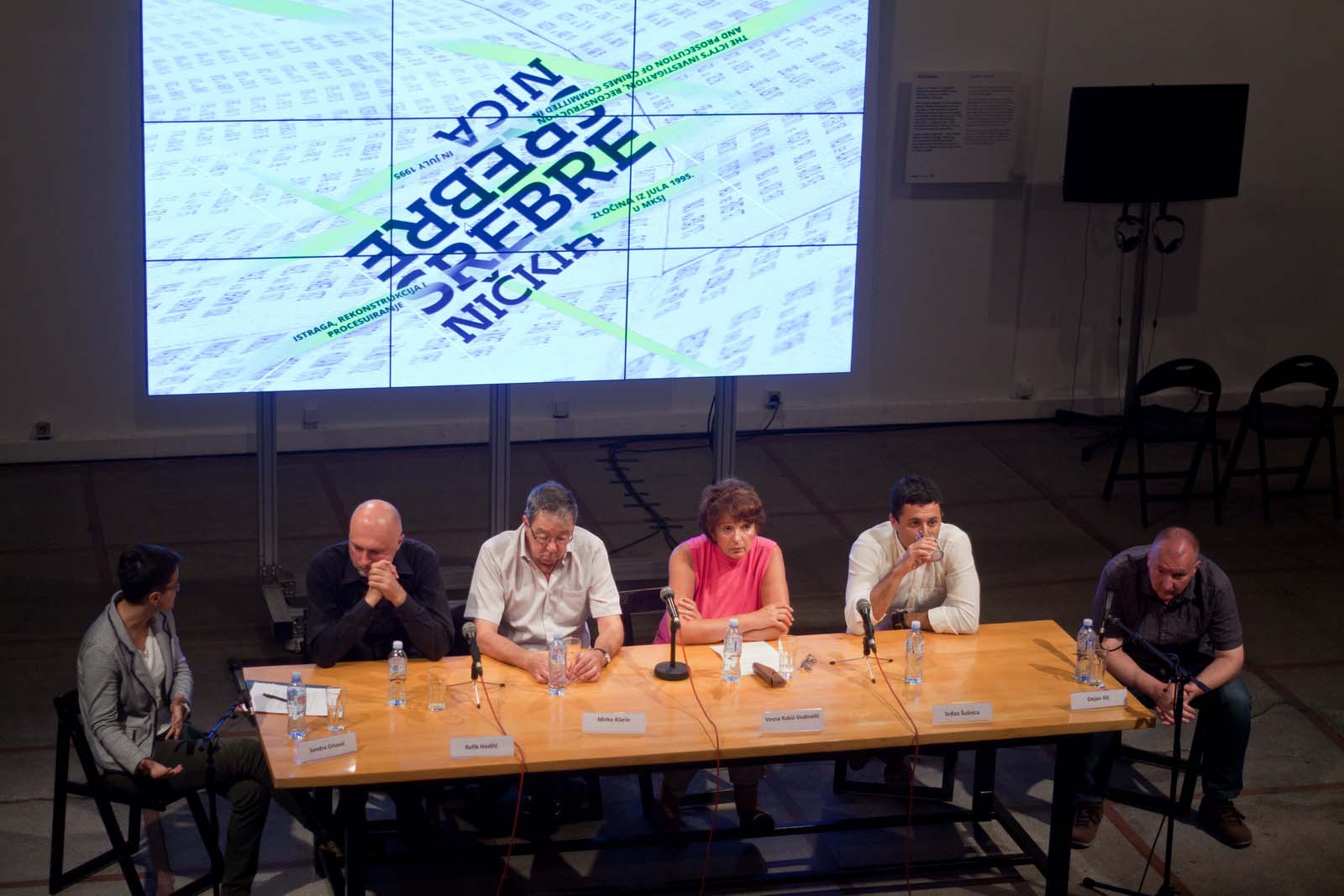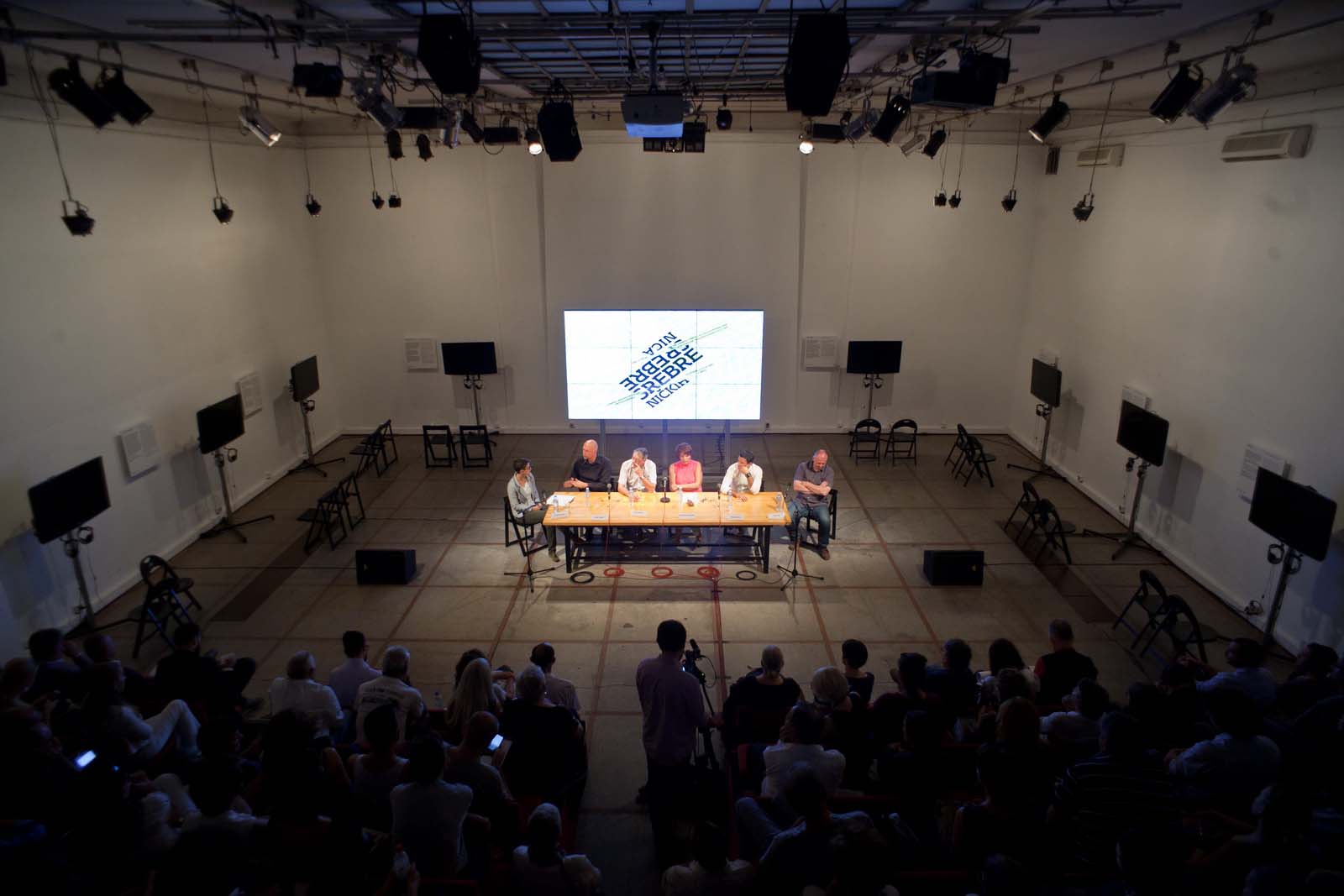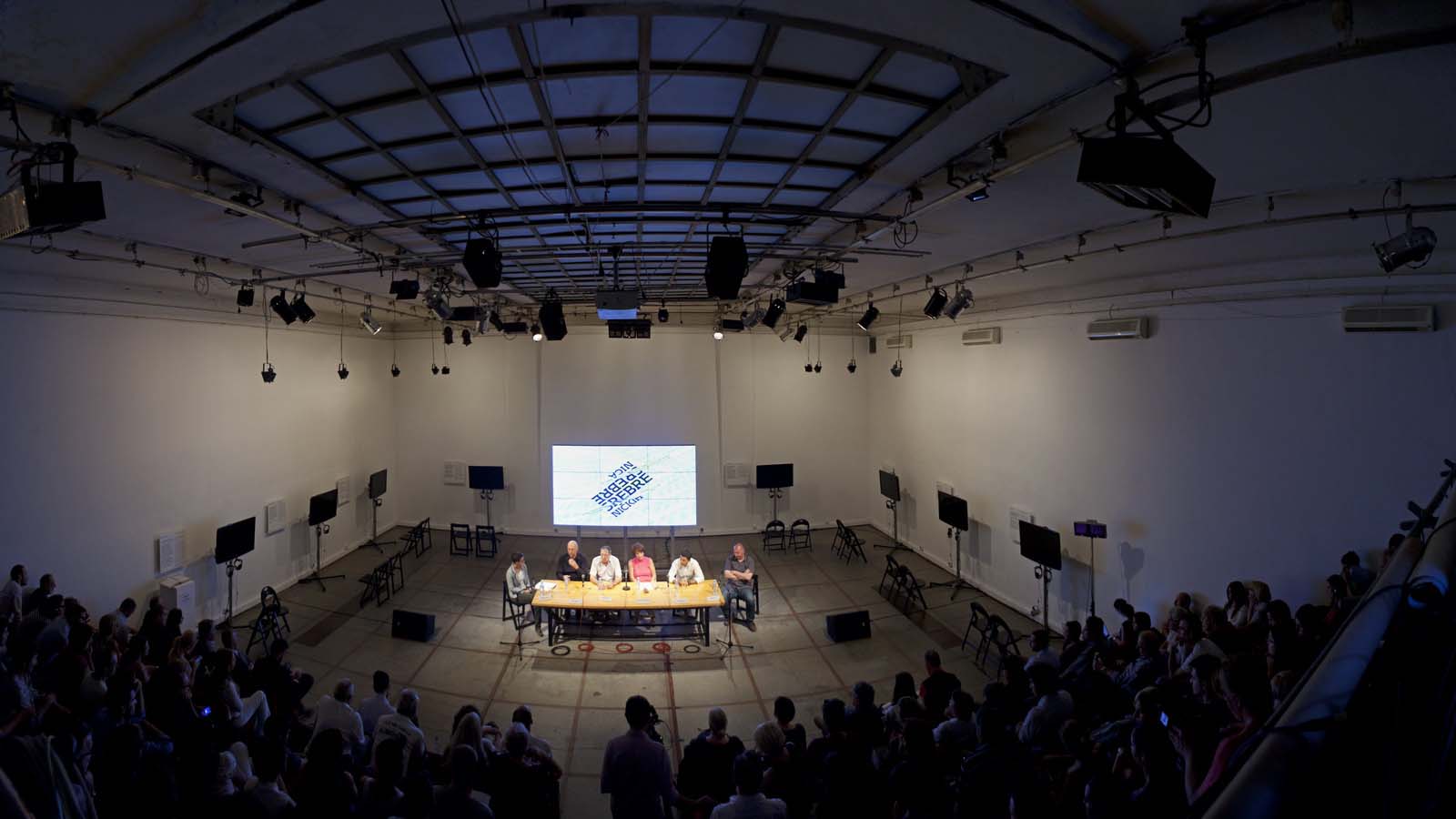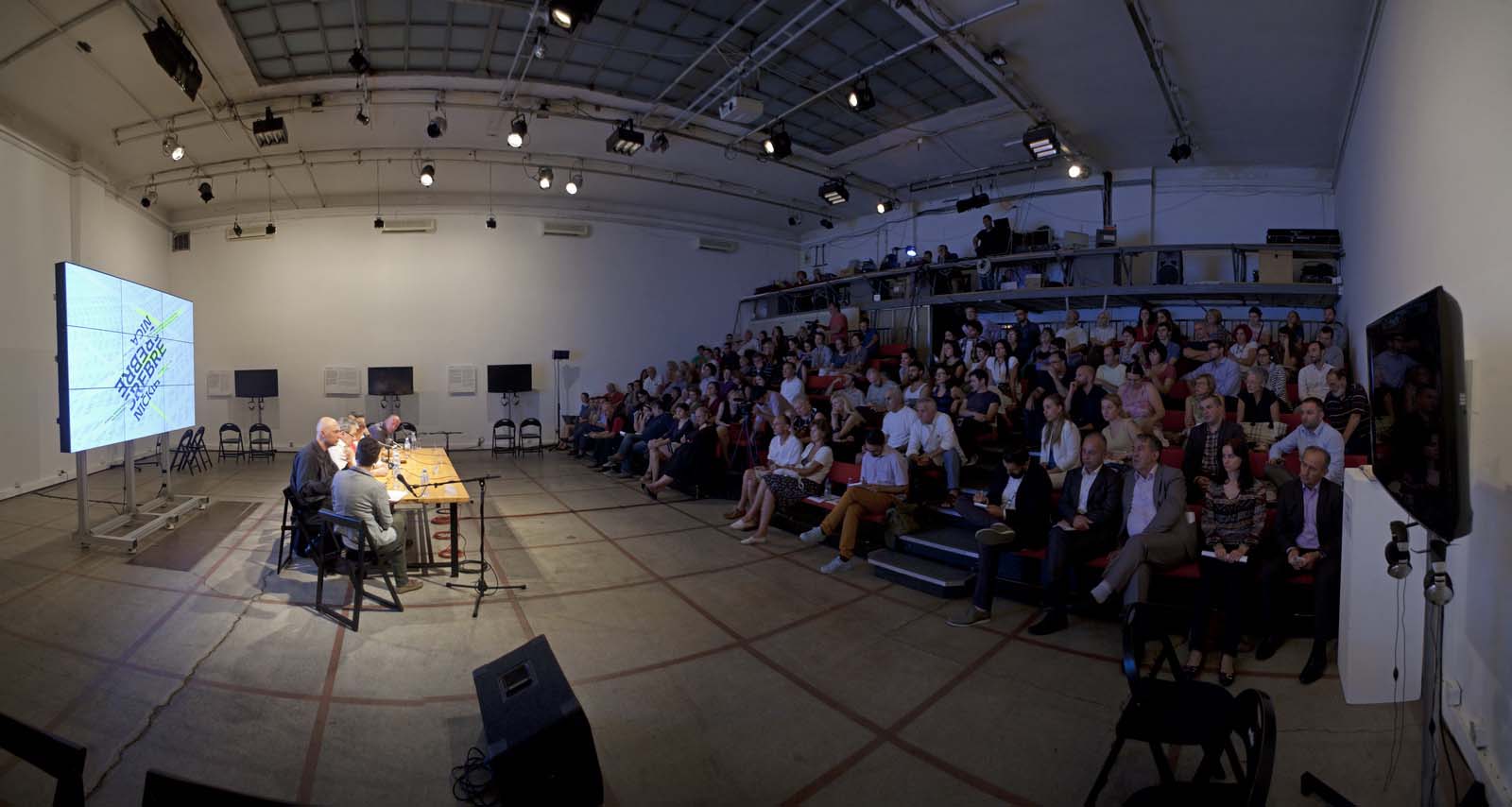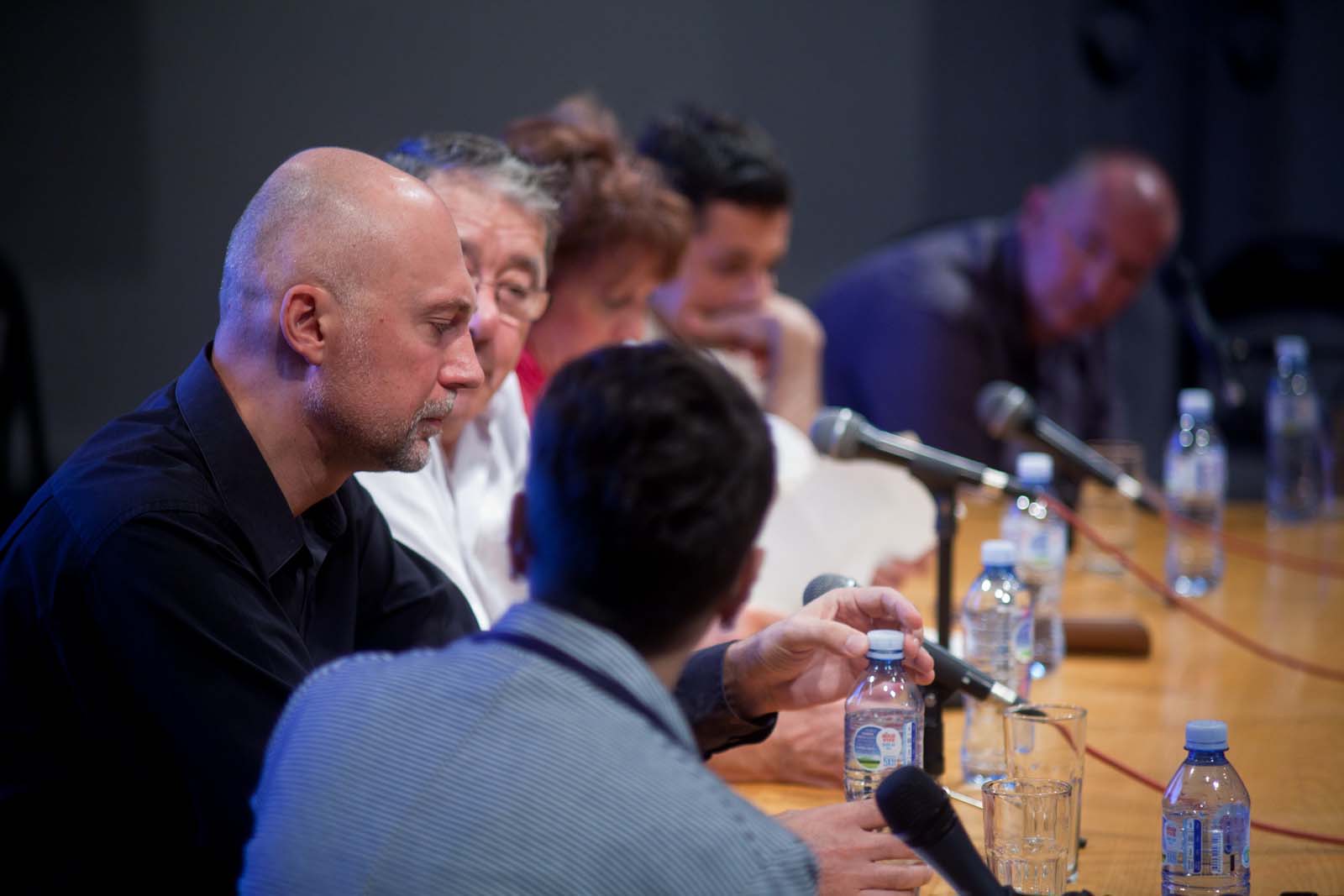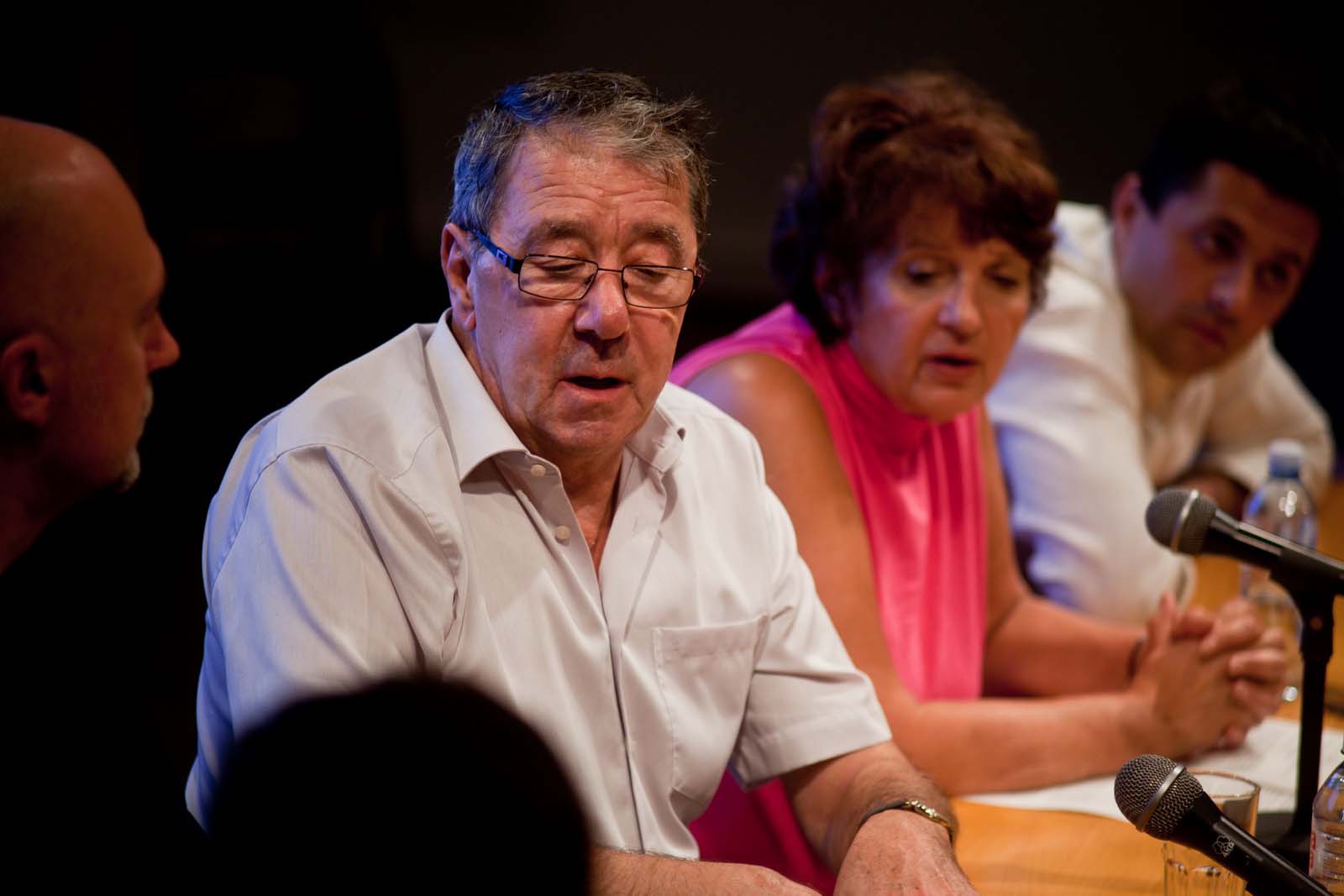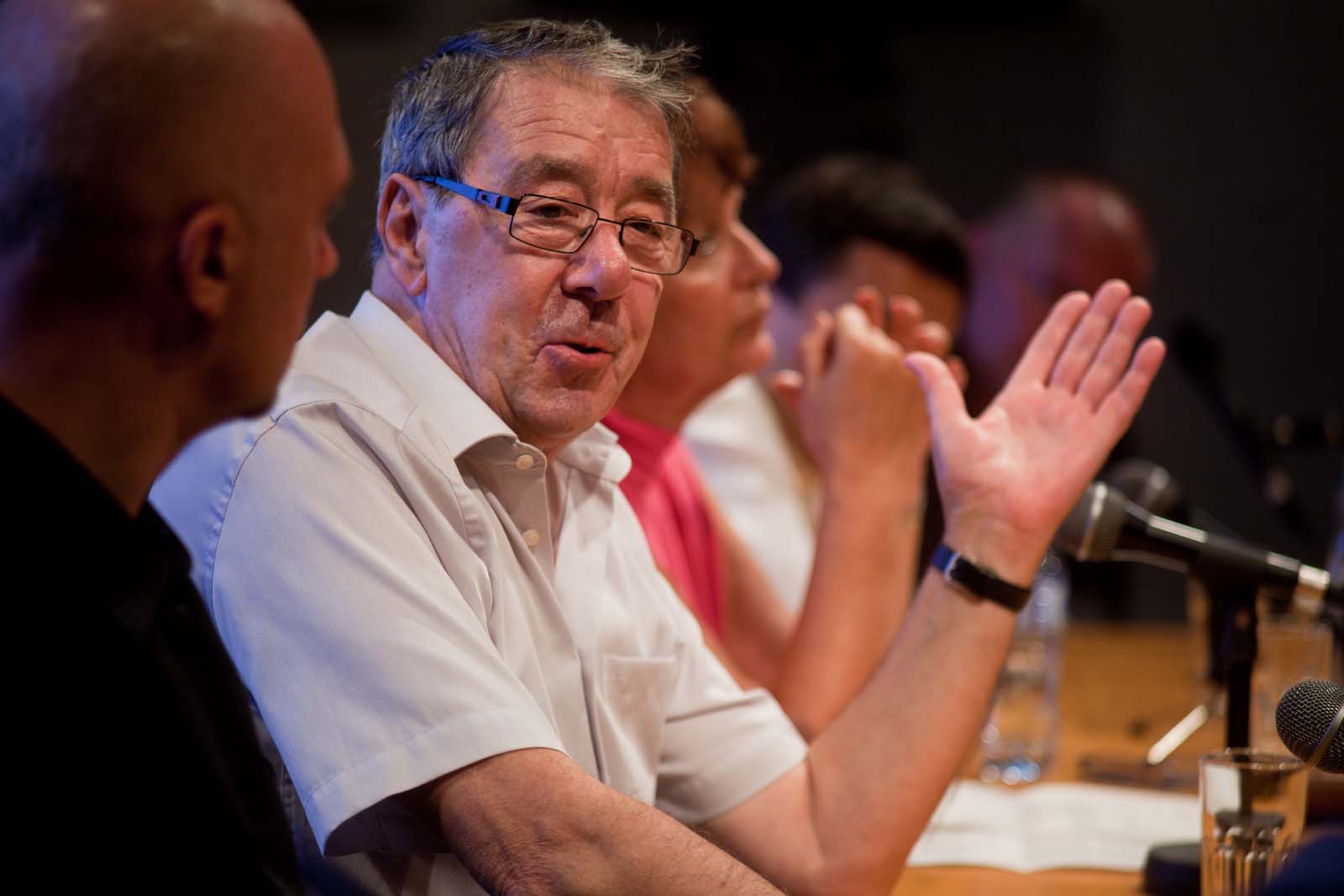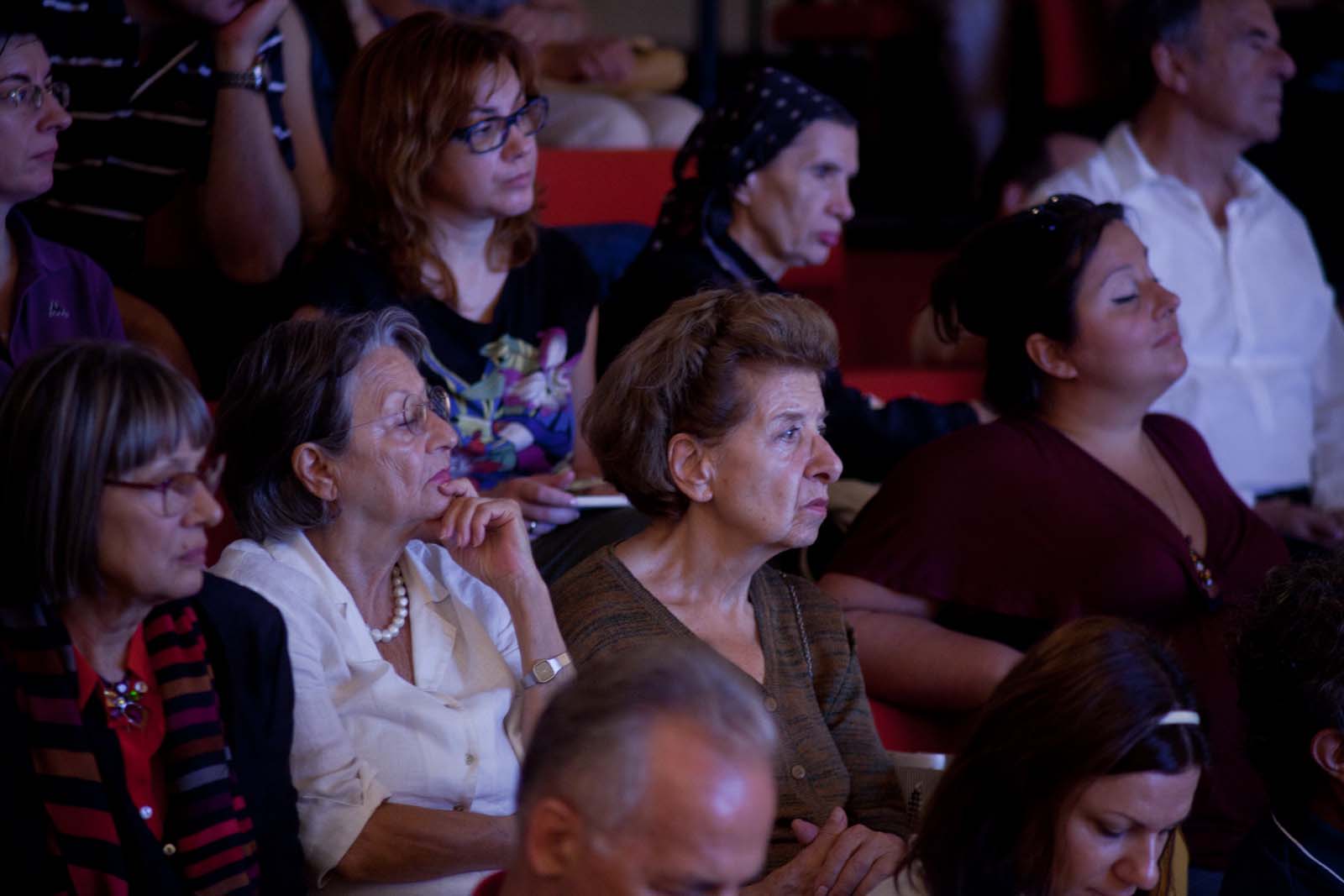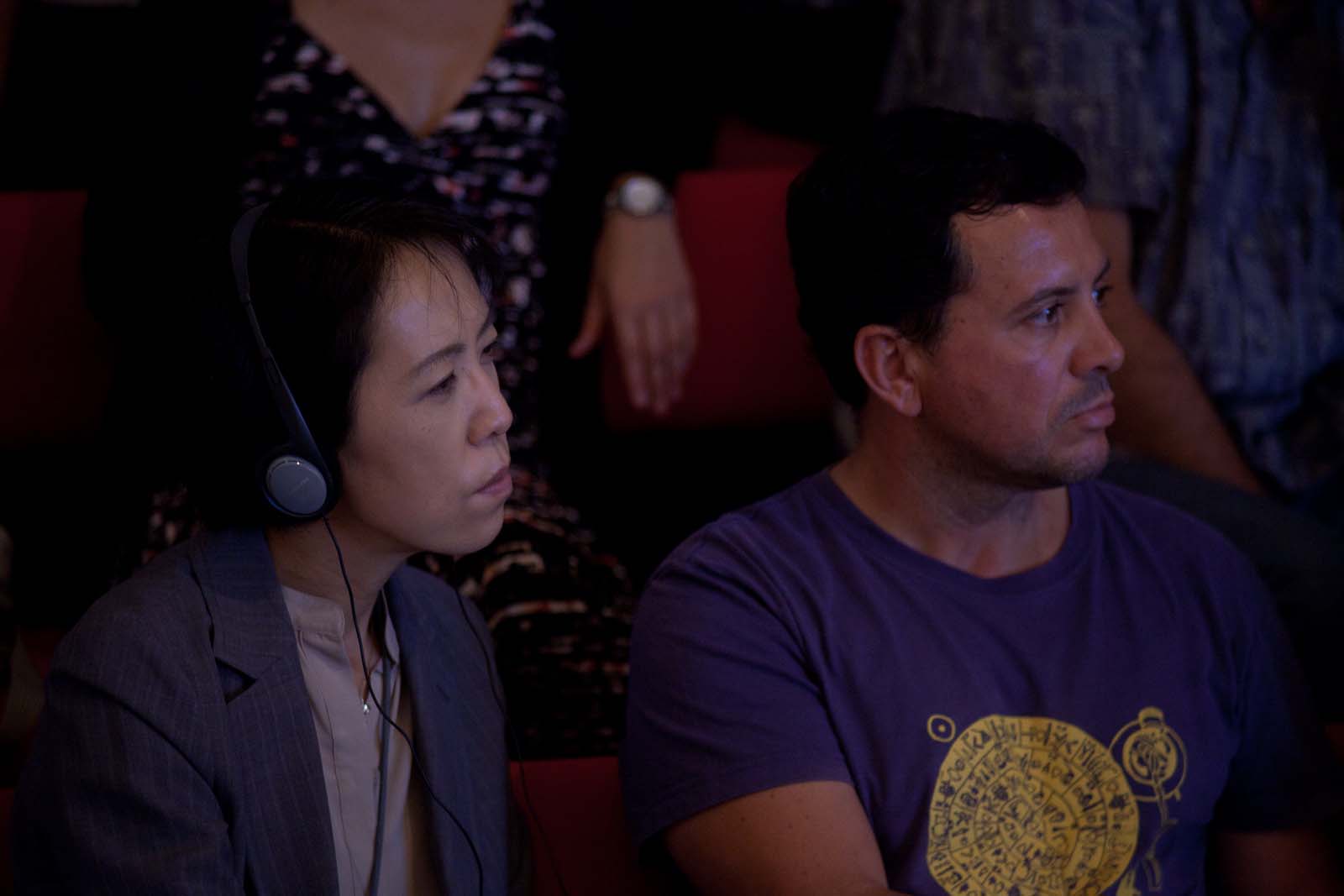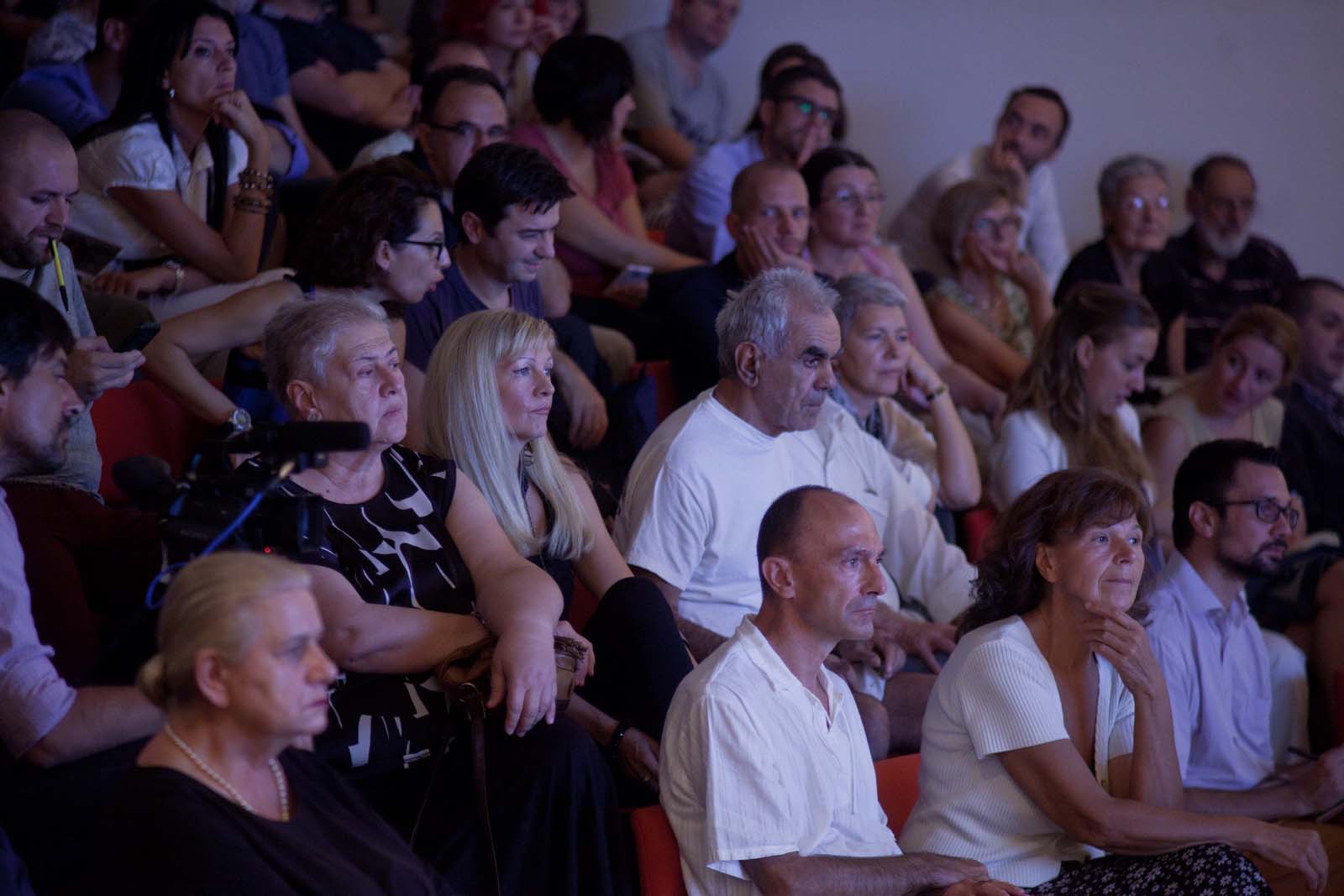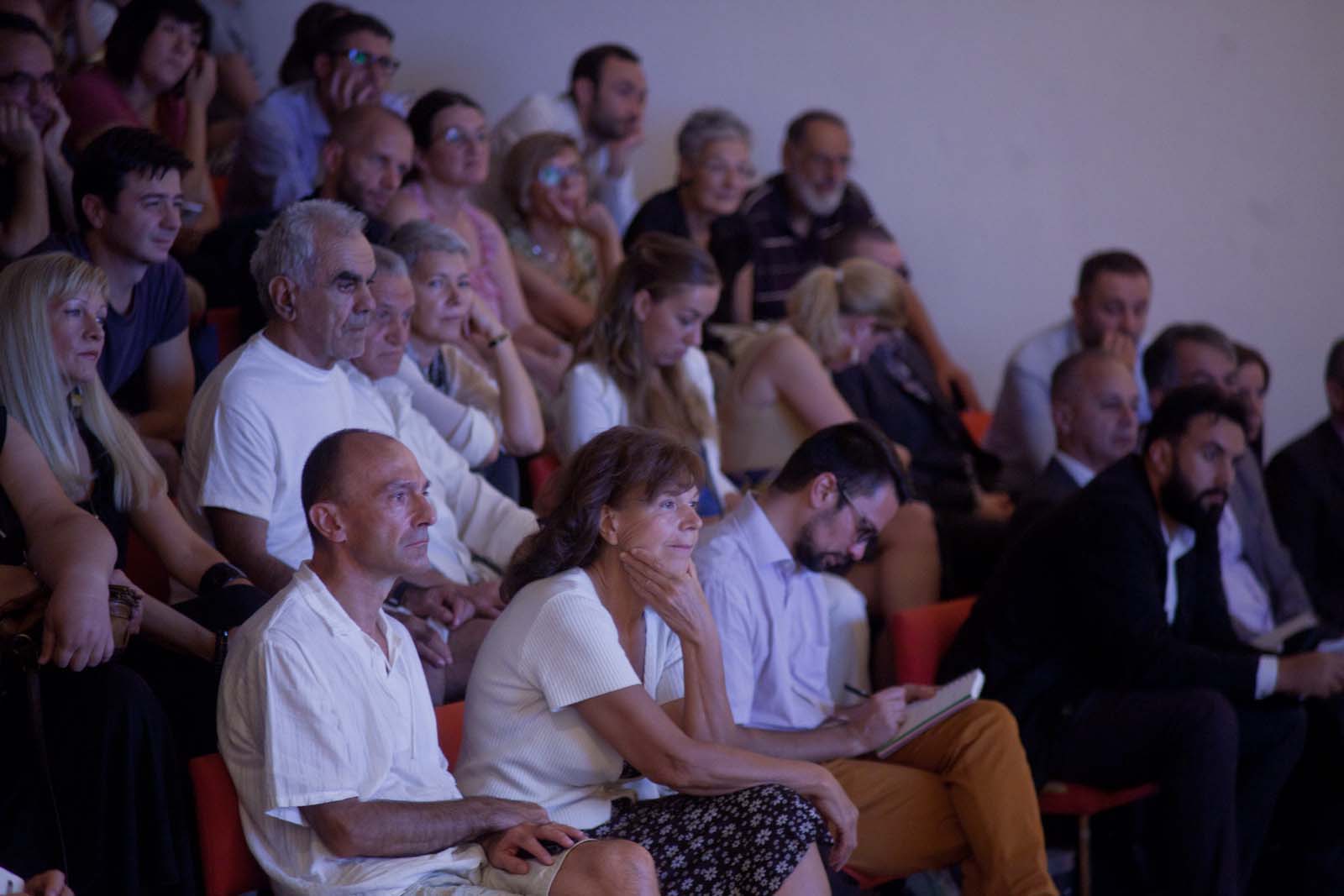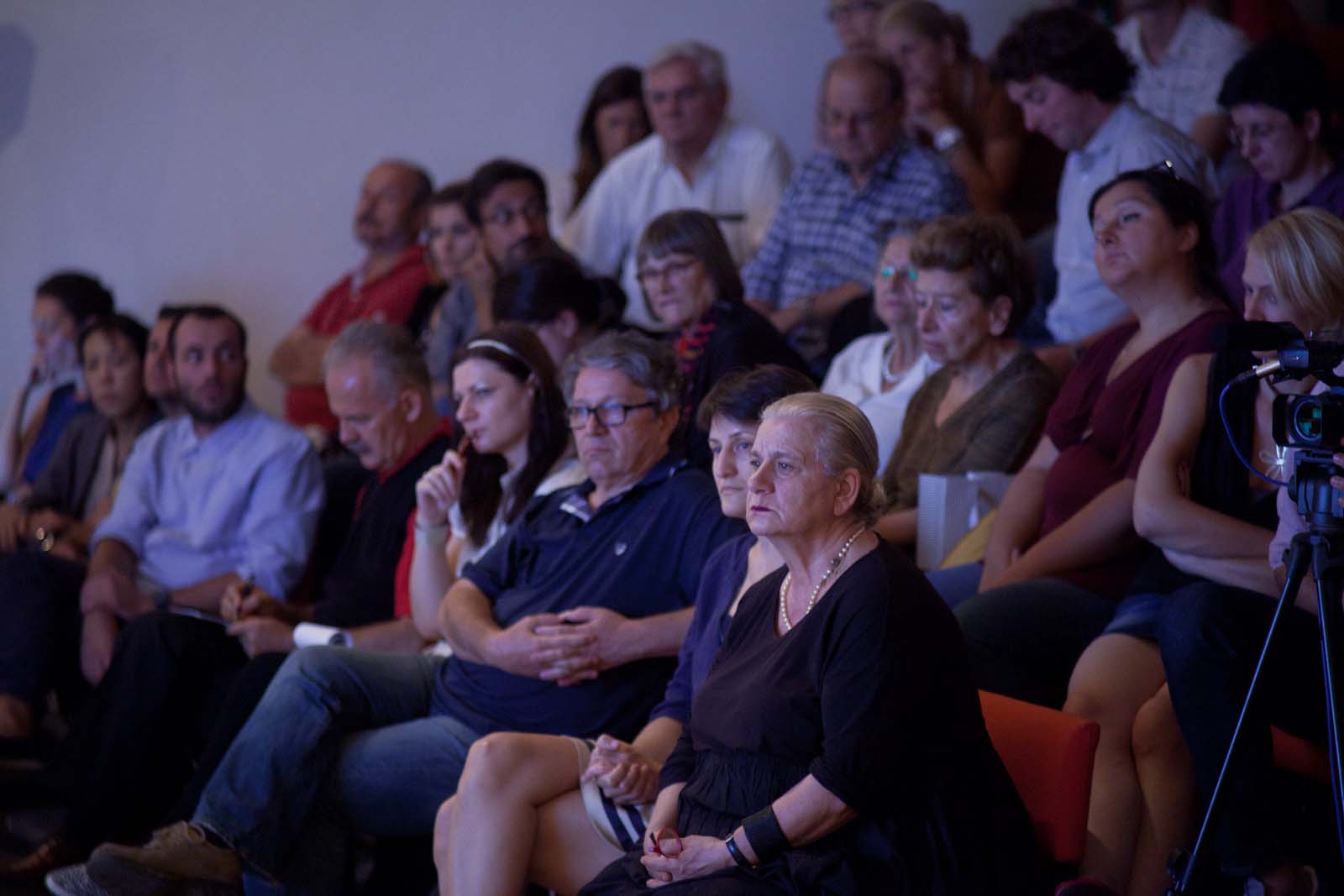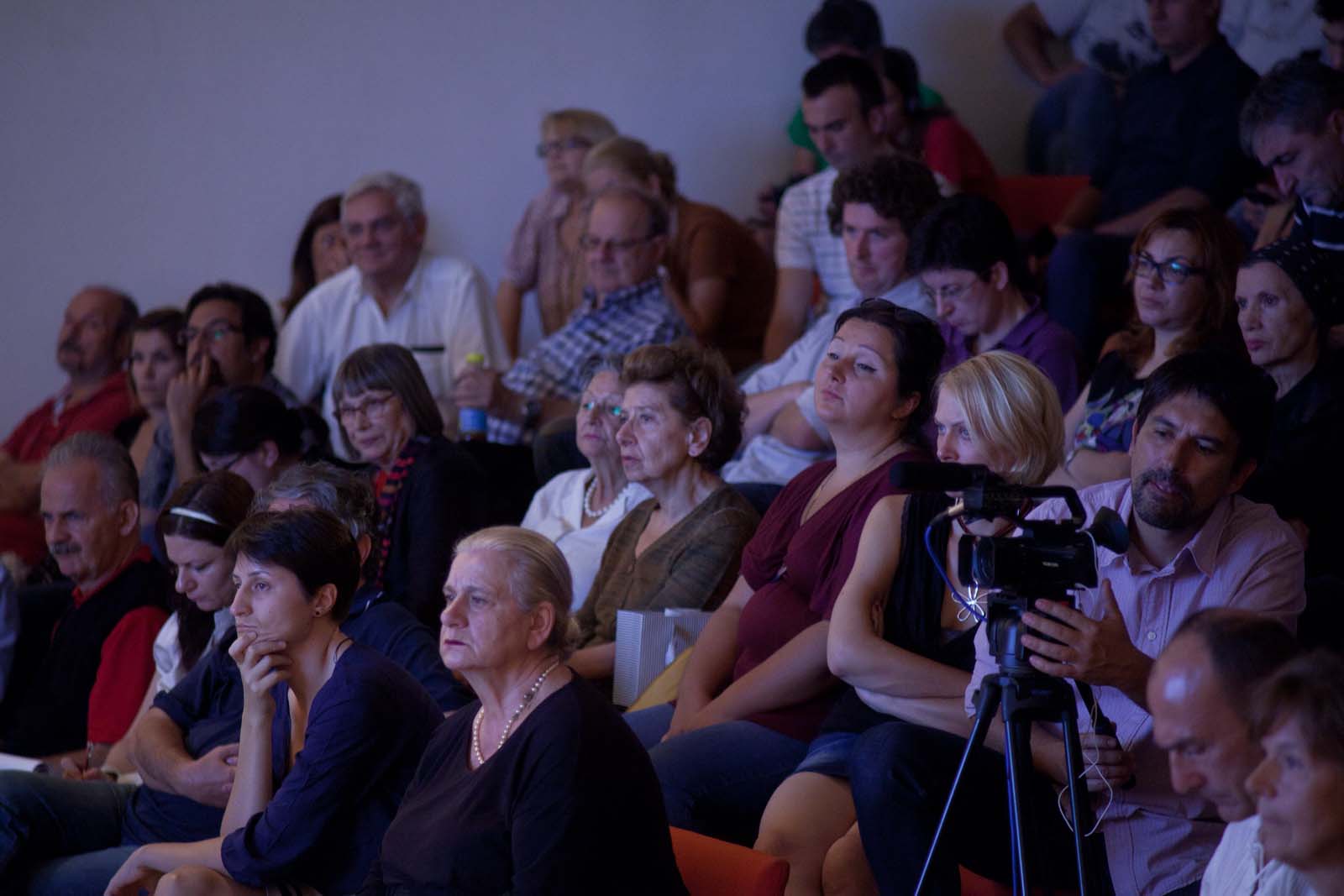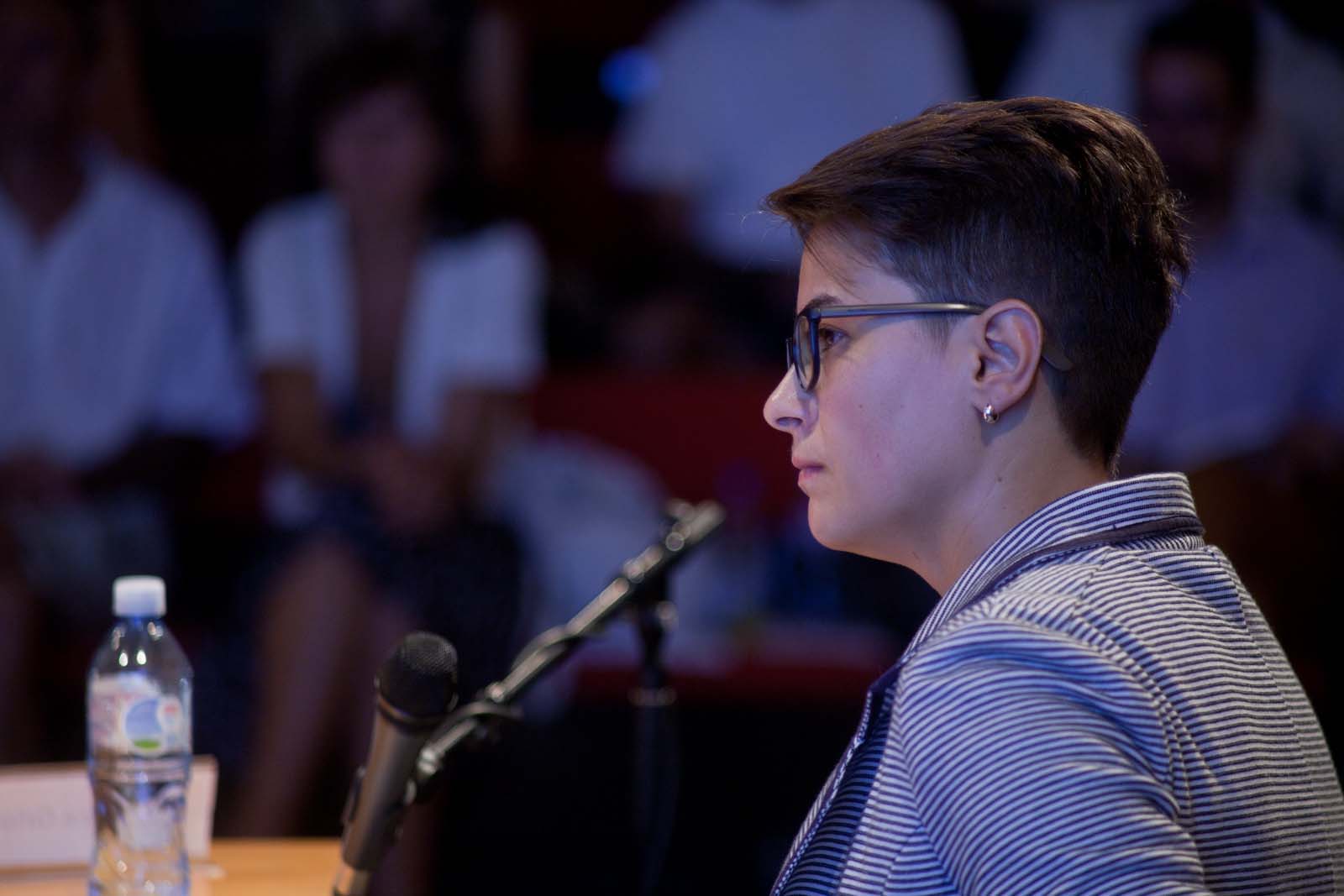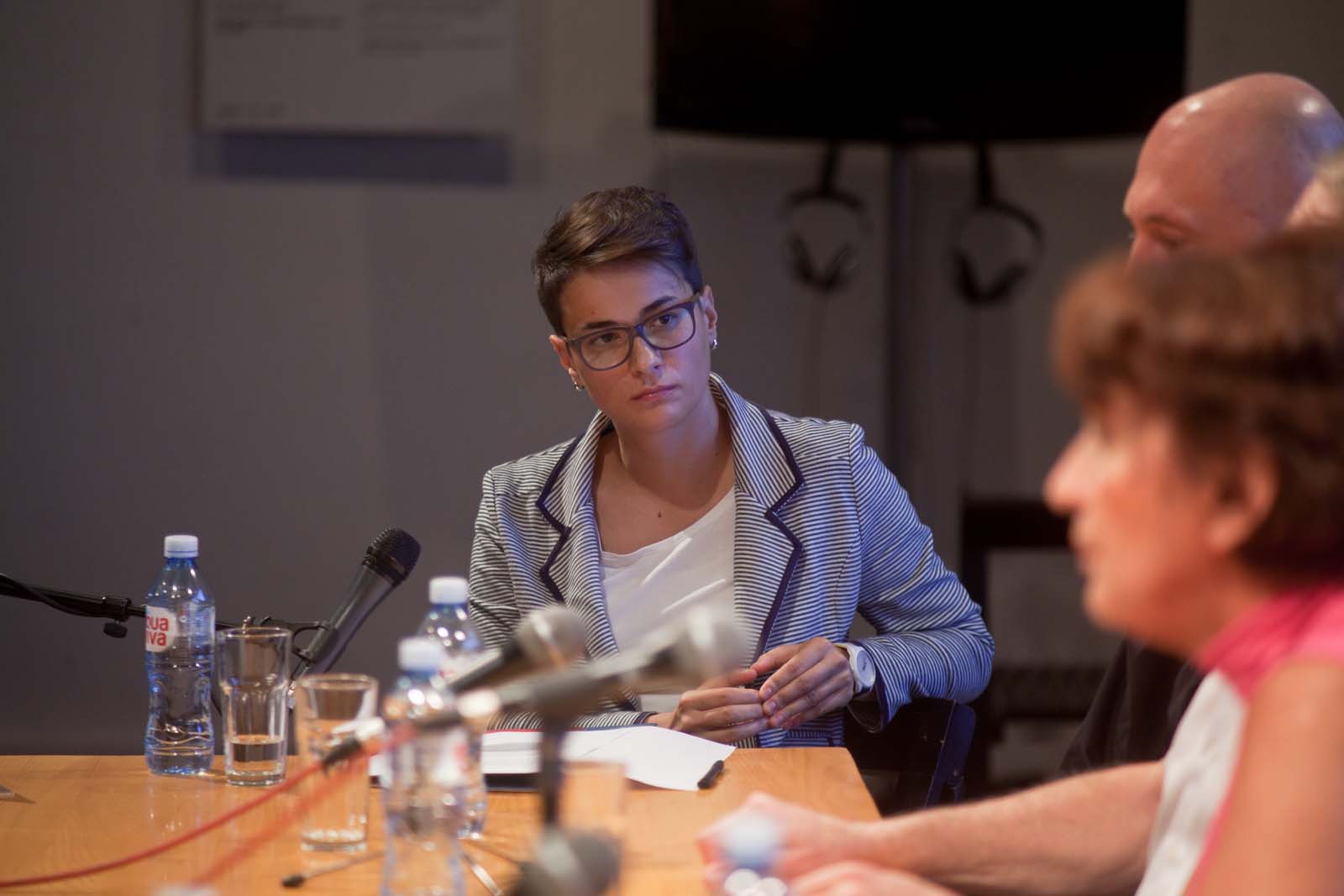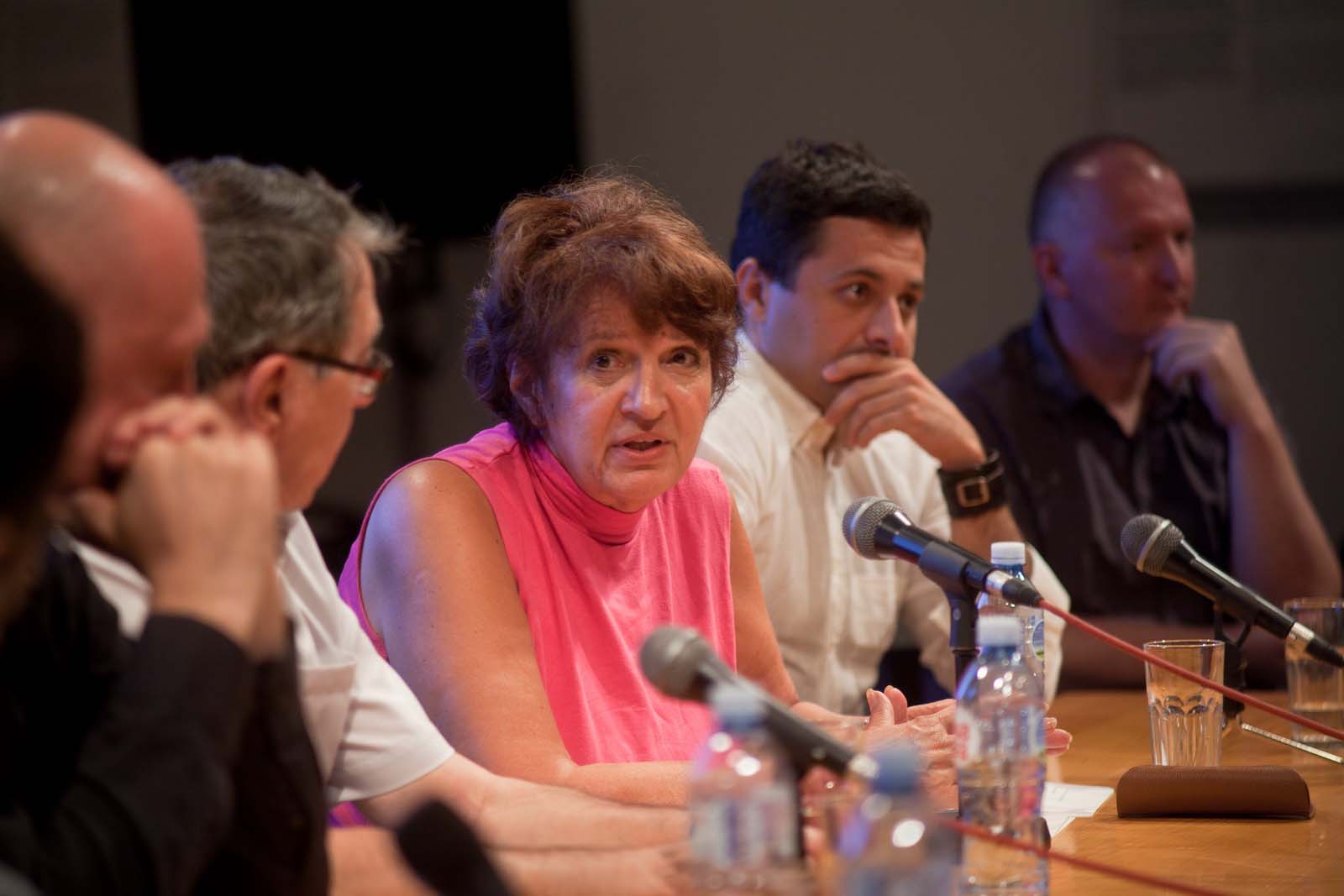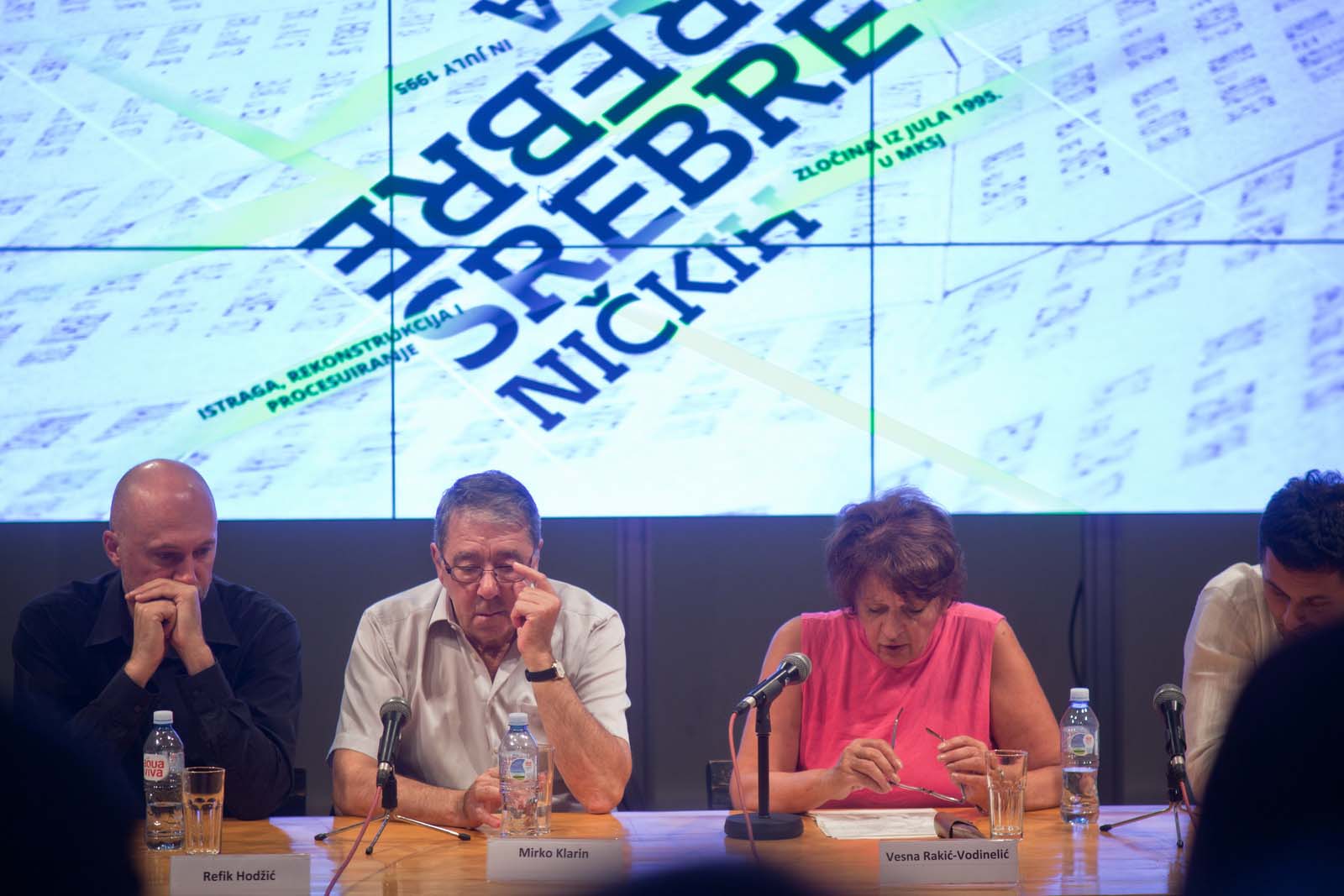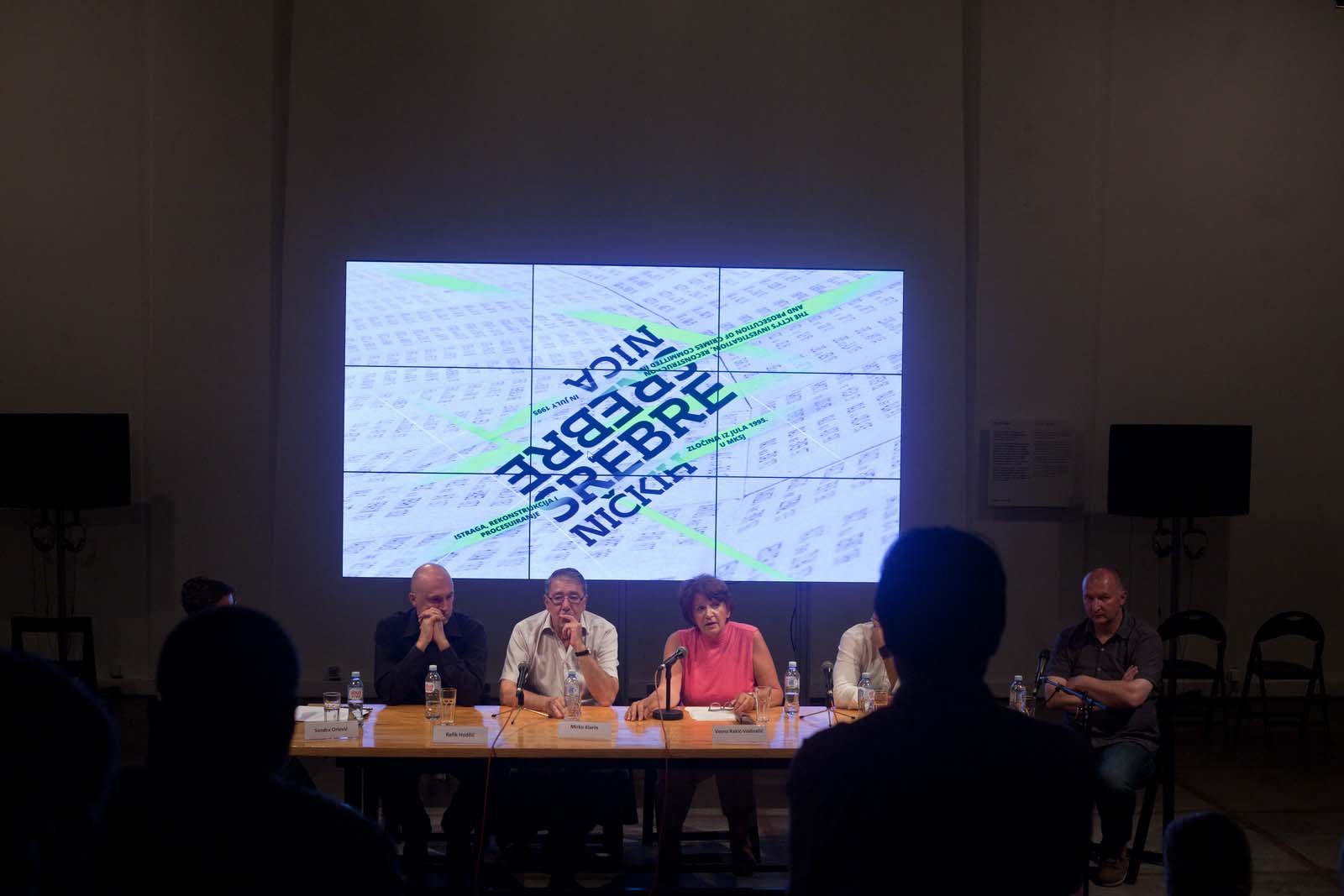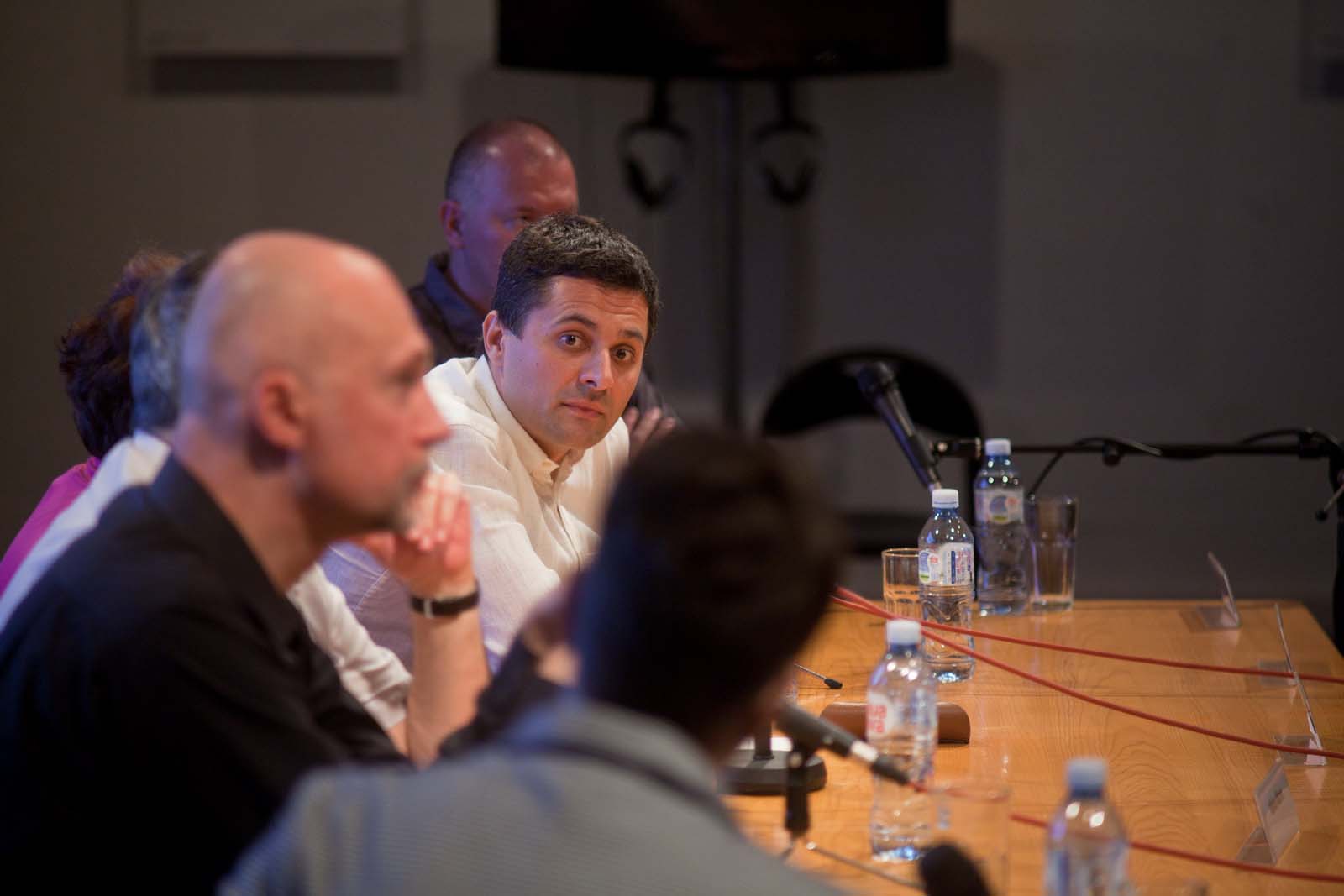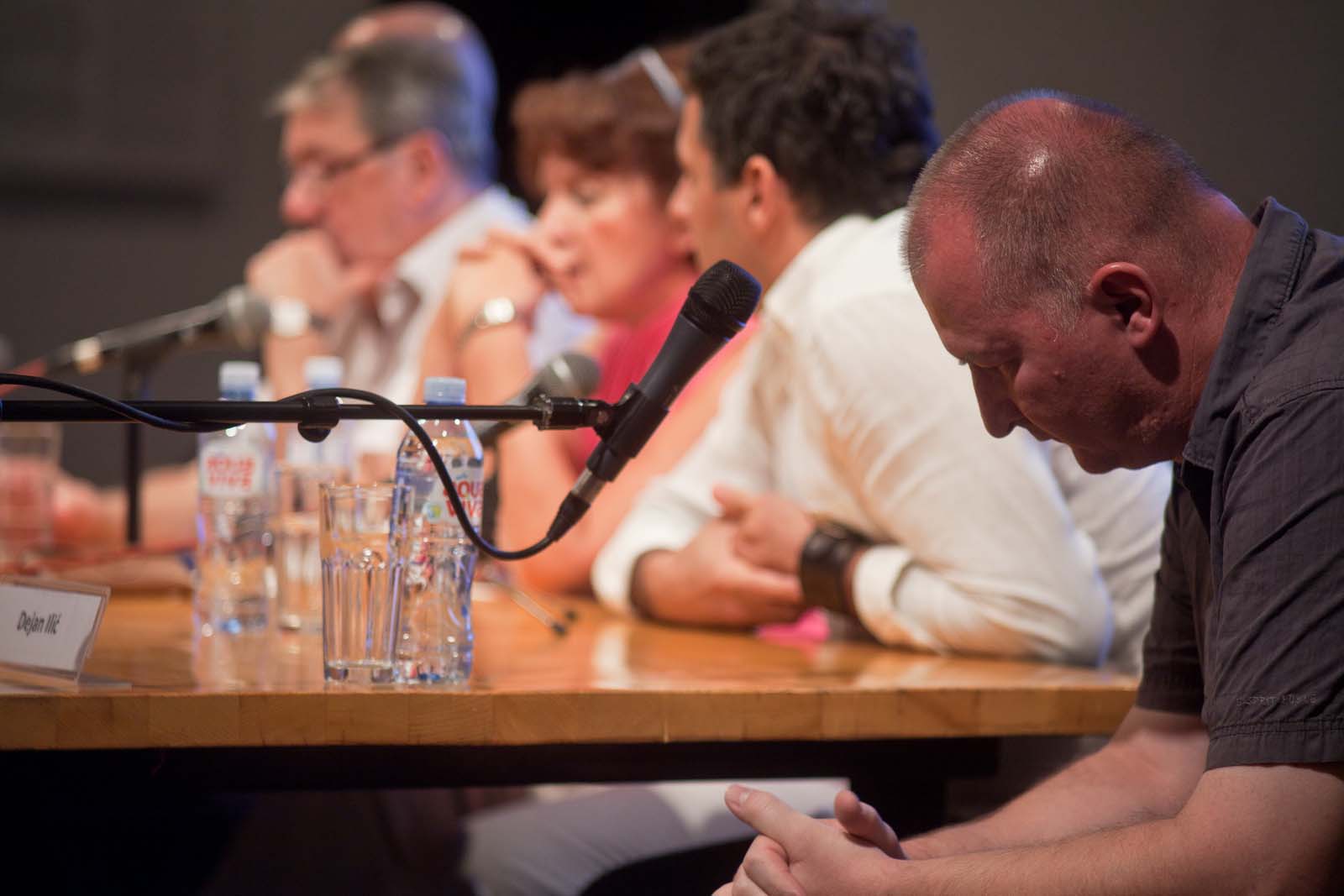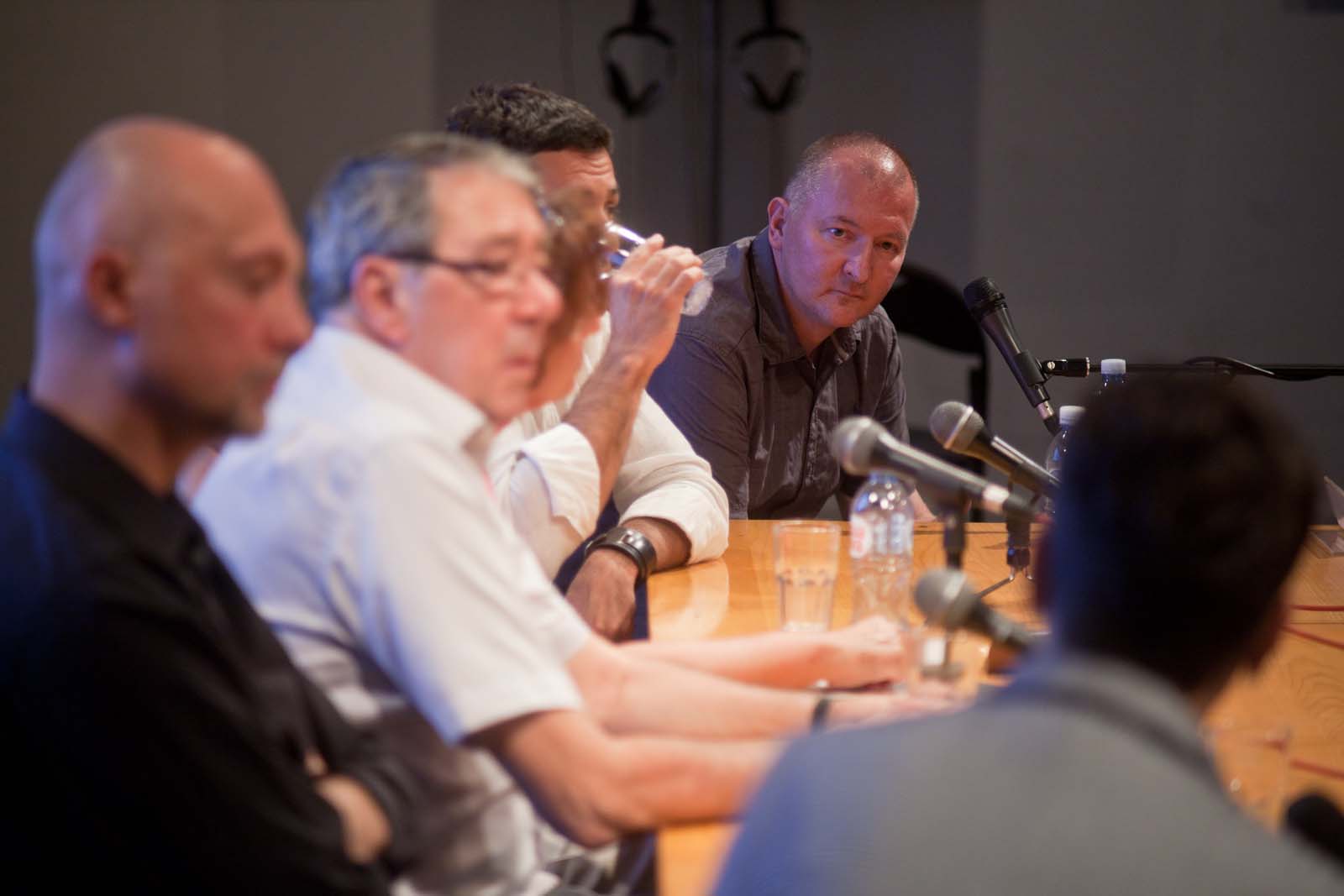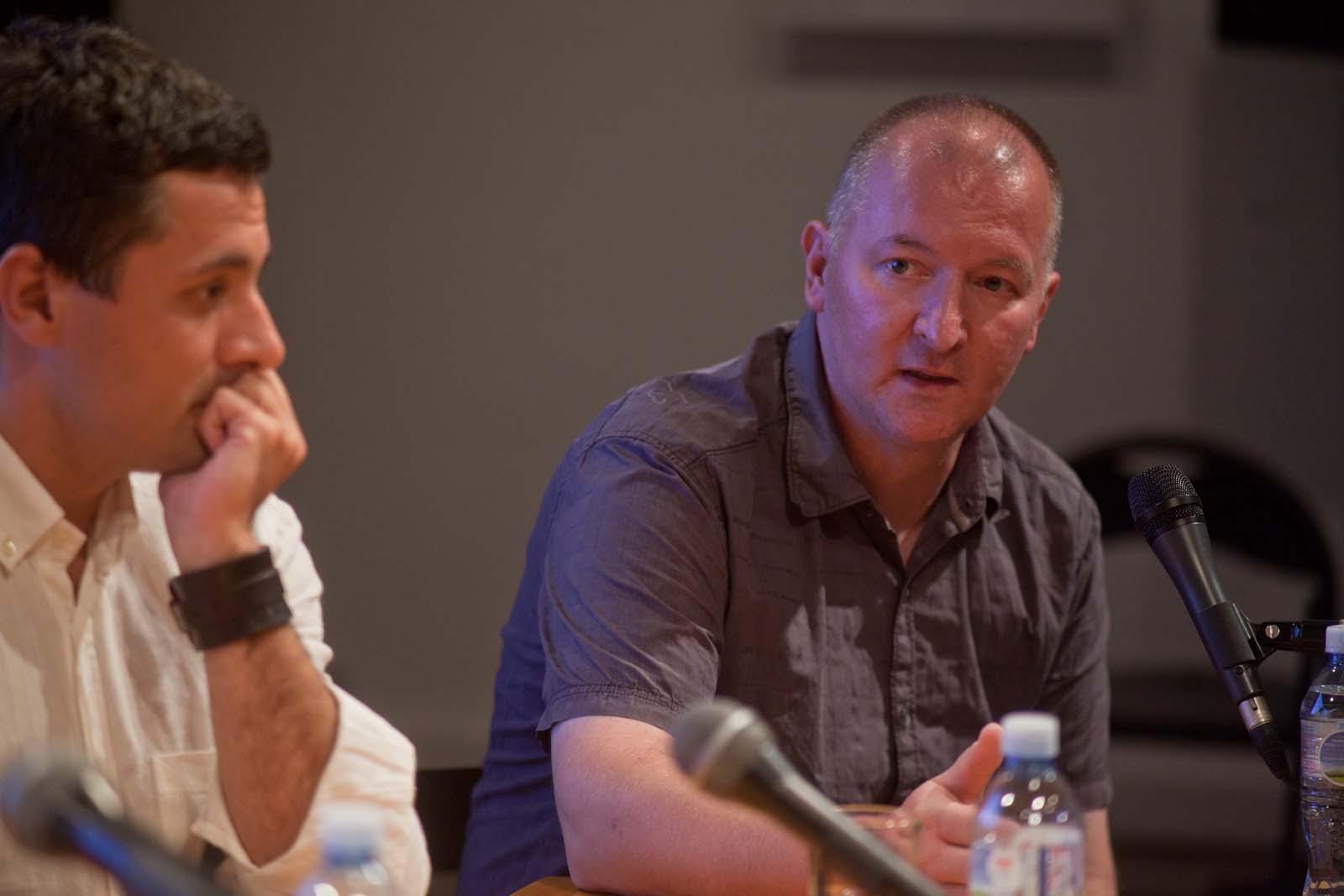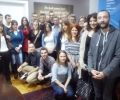The debate on Srebrenica: Recognition is necessary for reconciliation
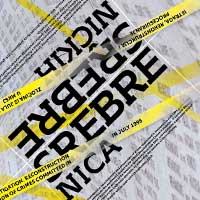 A documentary film entitled “Statement 710399” was shown last night in Belgrade Center for Cultural Decontamination. Following the screening there was a debate on the legacy of the genocide in Srebrenica, the possibilities of building trust and common remembrance, and the importance of court-established facts. Taking part in the debate were the film’s author and former spokesman for the International Criminal Tribunal for the former Yugoslavia (ICTY) Refik Hodzic, director of the SENSE – Center for Transitional Justice Mirko Klarin, a culturalist and activist from Banja Luka Srdjan Susnica, chief editor of the publishing house “Fabrika Knjiga” and columnist of the portal “Pescanik” Dejan Ilic and professor at the Faculty of Law of Union University in Belgrade Vesna Rakic Vodinelic.
A documentary film entitled “Statement 710399” was shown last night in Belgrade Center for Cultural Decontamination. Following the screening there was a debate on the legacy of the genocide in Srebrenica, the possibilities of building trust and common remembrance, and the importance of court-established facts. Taking part in the debate were the film’s author and former spokesman for the International Criminal Tribunal for the former Yugoslavia (ICTY) Refik Hodzic, director of the SENSE – Center for Transitional Justice Mirko Klarin, a culturalist and activist from Banja Luka Srdjan Susnica, chief editor of the publishing house “Fabrika Knjiga” and columnist of the portal “Pescanik” Dejan Ilic and professor at the Faculty of Law of Union University in Belgrade Vesna Rakic Vodinelic.
“Statement 710399” shows the efforts of family members of four people who disappeared during the Srebrenica genocide to determine what had happened to them. Nine years after its filming, the families still do not know the truth about the suffering of their loved ones. Justice was not served in any way whatsoever and the persons involved in their disappearance still work in the institutions of the Republic of Srpska, said the author of the film Refik Hodzic. He believes that the reconciliation process can only exist together with a political project of reconciliation, led by politicians. On the other hand, reconciliation at the local level within the community will take place more easily, providing the factors that deliberately hinder it are removed, such as the absence of an institutional framework for the realization of human rights and the presence in local institutions of people who were involved in crimes.
Director of the SENSE Agency and the Center for Transitional Justice from Pula Mirko Klarin called the investigation of Srebrenica events before the ICTY the biggest criminal investigation of the 20th century. The Army of the Republic of Srpska (VRS) kept proper records of all its activities and the crimes its units committed and these documents therefore had a major role in this investigation. These documents helped in uncovering the crime in Srebrenica and in determining the relationship between the VRS and the official Serbia. They showed that many of the VRS officers were paid by the Federal Republic of Yugoslavia and that the infamous 10th Sabotage Detachment, which was involved in the killings of Srebrenica residents, had previously been trained in Pancevo. Klarin criticized the ICTY for not having realized the importance of reaching out to the victims and the wider public in post-Yugoslav societies, but focusing primarily on the mark its judgements will make in legal theory.
Vesna Rakic Vodinelic considered that so-called “legal barbarization” is present in the whole region, that is the abandonment of rights in favour of political aims. This is especially evident in Serbia through a continuing refusal to call the crime in Srebrenica – genocide, despite court judgements that have classified it as such. She recalled that the International Court of Justice in the case of the BiH lawsuit against Serbia for genocide found Serbia guilty of failing to prevent it. According to her, this qualification itself should be sufficient for a review of our collective responsibility for the genocide in Srebrenica, and that it can form the basis for the compensation of victims and their families. She concluded that public recognition that the genocide in Srebrenica is part of Serbia’s political and social being is necessary for reconciliation.
Srdjan Susnica reminded the participants that the genocide in Srebrenica was a result of four years of activities directed towards the extermination of the Muslim population from a part of the territory of BiH. He added that it was not the consequence but the aim of the war. Reacting to the film that had been shown, he said it was unthinkable to publicly broadcast such a documentary in the Republic of Srpska today, since it exposes that Republic’s political foundations. In his opinion, the creation of the Republic of Srpska is a political reward for the genocide, since there are neither historical nor cultural reasons to justify its creation. A million people now living in this BiH entity live in the legal, political and cultural legacy of the genocide as well as the culturcide that had been happening since the beginning of the war. This culturcide involves deleting everything non-Serbian. The citizens are under constant indoctrination that pressures them to forget that Bosniaks ever lived on this territory.
Dejan Ilic commented on Serbia’s opposition to the British draft resolution on Srebrenica, which did not contain any provision whatsoever that would be controversial to Serbia or any other country, adding that negating it would negate everything connected to Srebrenica: that the genocide was committed, planned and supported. Vucic’s visit to Potocari was unnecessary since Serbia should firstly recognize its responsibility for the crimes committed and then pay respect to the victims. Ilic thought that the public in Serbia knows the truth about Srebrenica, but the basic problem lies in the fact that no-one is concerned about the truth. This follows from the previously established cultural pattern in which the facts of crimes are of no concern. In order to change attitudes towards the crimes, this cultural pattern must be changed. One of the tools through which this could be done is education, and Ilic specifically suggests introducing a lesson on Srebrenica in school curricula.
The participants in the debate agreed on the fact that our society has moved from the stage of crime rejection into the phase of crime legitimization, and that ignoring the need for dealing with the past paves the way for future conflict. In Refik Hodzic’s words, the narratives of injustice are fuel to a new conflict, while Srdjan Susnica believes that, if we do not manage to dismantle the legacy of the genocide through “force of law”, it will be dismantled through the “law of force”.
The presentation of the film and the debate on Srebrenica are side events in the audio-visual presentation “The ICTY’s Investigation, Reconstruction and Prosecution of Crimes committed in Srebrenica in July 1995”, which is displayed in the Center for Cultural Decontamination from 14 – 19 September 2015, by the Humanitarian Law Center and the Center for Transitional Justice in Pula.
Displaying of an audio-visual presentation in Belgrade was made possible with the support from the U.S. Embassy in Serbia, Open Society Foundation, Heinrich Boell Stiftung, Anne Frank Fonds and Friedrich Naumann Stiftung.






